

The 16 Most Popular Scholarship Essay and Application Questions
by Gabrielle McCormick | Nov 17, 2018 | Applying for Scholarships , Finding Scholarships , Scholarship Essays | 0 comments

Believe it or not, scholarship committees generally ask the same types of questions and have similar applications.
That’s right! The scholarships you find are going to fit into specific themes which you must be able to identify in order to save your family time, frustration, stress, and most importantly – money.
The 16 themes below are designed for you to use as a reference until you can spot them on your own. Also, make sure you check out our Scholarship Fast Track videos , specifically the Application Accelerators Module , that outlines these scholarship essay themes and questions even more!
The Top 16 Scholarship Essay Themes
- Committee Composition
- Competition
- Contribution
- Credentials
I’ve provided a definition as well as common scholarship question examples for each theme.
[info-box type=”success”] Real Talk: These questions are not made-up and, in fact, come from actual scholarship applications that are open to students at all levels. I hope that they serve you well in preparing for your upcoming applications. [/info-box]
Common Scholarship Questions and Essay Prompts
Scholarship essay theme: career.
The career theme is pretty self-explanatory. The committee wants to know any and everything relating to you or your student’s career goals.
Common Scholarship Questions:
- What do you want to do after you graduate from college?
- Why did you select this career?
- How will you change the field/industry?
- Where do you see yourself 10 years from now?
Scholarship Essay Theme: Catch-All
This is a student’s life summary or autobiography which usually includes information about the past, present, and future. Some committees refer to it as a personal statement or brief bio. (Warning: Not all personal statements will be looking for a life summary. Make sure you read the application carefully.)
- Please write a short autobiography including information about your family, work experience, community involvement, hobbies, spare time activities, and what you hope to do in the future.
- Please include a short summary or personal statement describing your accomplishments and goals.
- List any honors and awards you’ve received.
- List your extra-curricular activities.
Scholarship Essay Theme: Challenges
Everyone loves a good underdog story. An essay theme that focuses on Challenges asks the student to identify a time when they were down or faced conflict. The committee wants to hear how instead of giving up, you rose to the occasion or at least learned what was necessary to achieve success.
- Write a short essay that describes areas in your life where you demonstrated leadership and overcame obstacles either through your school, social, or family life.
- What’s the most difficult challenge you’ve ever faced? How did you handle it?
Scholarship Essay Theme: Champion
Why you? Out of all the available applicants, why should you or your student earn the scholarship?
- Why do you need this scholarship?
- Please list any additional comments you believe would be helpful in the committee’s decision.
- In 100 words or less, tell why you would like to receive the XYZ scholarship.
Scholarship Essay Theme: Change
This is one I’m starting to see more and more of in the scholarship world. Committees are interested in the opinions, thoughts, and ideas of applicants. With topics like legislation, population control, and the environment, committees want to see analytical and critical thinking skills.
- What do you think we should do about gun control in this country?
- How would you handle texting and driving?
- Create an innovative solution to reduce waste.
Scholarship Essay Theme: Character
As Defined by Merriam-Webster , “Character is the way someone thinks, feels, and behaves .” Essentially, it’s what makes you who you are.
- Describe a time in your life that has shaped who you are as a person.
- This is what I believe in…
- How do you define success?
- What traits do you possess that will enhance your education or future career?
Scholarship Essay Theme: Classroom
Academics, teaching methods, assignments, and anything that pertains to student learning fall under this category.
- How has technology impacted student learning?
- If you could design a college curriculum, what would it be?
- Do you believe that standardized testing has helped or hindered student learning?
Scholarship Essay Theme: College
This is one of the most common scholarship essay themes. The premise: Why do you want to go to college?
You’ll often see this theme attached to others as an additional question or a required component of the application.
- Why do you want to go to college?
- What do you expect to gain from earning a college degree?
- What are your educational goals?
Is this helping you? Are you beginning to see how this can save you a lot of time? If so, let me know in the comments below, Tweet Me @ScholarshipTalk, or just share the following message and I’ll know you see the benefits of organizing your scholarships based on themes. ?
[clickToTweet tweet=”Organizing my scholarships based on the 16 core essay themes has saved me time! #OwnYourDegree” quote=”Organizing my scholarships based on the 16 core essay themes has saved me time!”]
Scholarship Essay Theme: Committee Composition
I’m sure you’ve seen some of the eccentric scholarships out there that challenge you to write about your favorite ice cream, talk about using their product, or design a logo for their company. These scholarships tend to be unique or inspired by the sponsoring organization.
- Create a greeting card and be featured in our upcoming holiday card collection.
- Design a mascot for our company.
- Write an essay about how lights and fixtures could impact your mood.
- Develop an innovative video to end smoking.
Scholarship Essay Theme: Community
This is also a popular scholarship theme. Instead of looking at a student’s GPA, test scores, or major, the community essay theme focuses on community service, community initiatives, and community improvement.
- Describe a meaningful volunteer experience?
- Make thank-you cards for military service members.
- Share a project you developed to change your community.
Scholarship Essay Theme: Competition
A common theme for athletes, band members, dancers, or those involved in groups/organizations is the Competition scholarship essay. It highlights participation and its associated benefits.
- What does it mean to be a good student on the field, in the classroom, and in the community?
- Define what it means to be a good teammate?
- Describe a moment of sportsmanship.
Scholarship Essay Theme: Contribution
Again, this is another scholarship essay theme that you may see added to another scholarship question or application. The committee wants to know about you or your student’s contribution to society at various levels.
- How will you make a difference in our world?
- How have you made a difference in your community?
- What do you think our country should do to foster unity?
Scholarship Essay Theme: Control
Control , i.e. leadership, oftentimes stands alone as a scholarship theme because of the many questions that can be asked. From being a leader to follower and everything in between, the committee is seeking answers regarding group interaction, the organization of people, or participation within a group setting.
- What does leadership mean to you?
- Explain a family, social or school situation, in which your leadership made the difference. What was accomplished?
Scholarship Essay Theme: Creative
I’m starting to see a rise in Creativ e scholarship essays as well. You may notice some similarities with the Committee Composition theme because these scholarships are usually committee-driven and created.
The committee will provide a question, but give you freedom in depicting or representing the theme or category they’ve selected.
- Write a short story of 2,000 words or less.
- Create a video of 2-minutes or less to encourage young people to stop texting and driving.
- Submit a photograph depicting the word “family”.
Scholarship Essay Theme: Credentials
As defined by Merriam-Webster , “Credentials are a qualification, achievement, personal quality, or aspect of a person’s background, typically when used to indicate that they are suitable for something.”
These scholarships will require specific credentials to apply or may use the credential within application questions.
- To apply for this scholarship, you must be a female student majoring in a male-dominated industry. Please tell us why you selected this career?
- Applicants must be a member of the LGBTQI community. Describe a volunteering activity you conducted for your community.
- Students must be a dependent of an active military member or veteran. Why do you need this scholarship?
- Students applying for this scholarship must be undergraduate students entering their first semester. What study habits do you think are imperative to freshmen student success?
Scholarship Essay Theme: Culture
Cultures can be comprised of many different components. From college communities to hometown traditions, the Culture theme is based on the defining characteristics of a student’s environment.
- Tell the committee why you decided to attend college out-of-state?
- What does your university’s tradition and pride represent?
- Submit a piece of artwork that captures your town.
[info-box type=”alert”]Do you want a downloadable version of these themes and questions for your notes? Click here for a FREE copy . [/info-box]
Save a Ton of Time by Using These Themes
Scholarship applications may have one or several themes present. Focus on identifying your possible scholarship themes.
Labeling scholarships by themes and working on them at the same time allows the student to divide and conquer. If your family can get good at identifying themes, you’ll immediately save hours of time on applications .
As I start to see new themes emerge, I’ll be sure to add them to the list. For now, this should keep you pretty busy as you continue to find and apply for scholarships.
How can we help?
Stay connected .
Free Webinar
COVID-19 and Scholarships
The scholarship process is being influened by COVID-19.
Make sure your family is prepared and protected. Register today.
Scholarship Topics
Access additional information resources and tools, speak with a scholarship coach schedule a session, join our private community facebook group, need tech take advantage of your si dell discount.

Click Here to Speak with a Dedicated Dell Account Manager!
Popular Blog Posts
Financial Aid
20 Important Questions for Financial Aid
Scholarship Planning
How Many Scholarships Should You Be Applying For?
Scholarship Scams
How to Spot and Avoid the Most Common Scholarship Scams
Winning Essay Tips
Why the Scholarship Committee Hated Your Essay
Increase Your Chances
JOIN SCHOLARSHIP EDGE
Step-by-Step Help from a Scholarship Winner
Winning tools, templates, and examples, get help when you're stuck from a scholarship coach.

Enjoying this blog post?
Then you'll love our newsletter! Subscribe to Scholarship Informer Weekly for exclusive content and updates.
You're Subscribed!
- Search All Scholarships
- Exclusive Scholarships
- Easy Scholarships to Apply For
- No Essay Scholarships
- Scholarships for HS Juniors
- Scholarships for HS Seniors
- Scholarships for College Students
- Scholarships for Grad Students
- Scholarships for Women
- Scholarships for Black Students
- Scholarships
- Student Loans
- College Admissions
- Financial Aid
- Scholarship Winners
- Scholarship Providers
Student-centric advice and objective recommendations
Higher education has never been more confusing or expensive. Our goal is to help you navigate the very big decisions related to higher ed with objective information and expert advice. Each piece of content on the site is original, based on extensive research, and reviewed by multiple editors, including a subject matter expert. This ensures that all of our content is up-to-date, useful, accurate, and thorough.
Our reviews and recommendations are based on extensive research, testing, and feedback. We may receive commission from links on our website, but that doesn’t affect our editors’ opinions. Our marketing partners don’t review, approve or endorse our editorial content. It’s accurate to the best of our knowledge when posted. You can find a complete list of our partners here .
How to Start a Scholarship Essay (With Examples)

Will Geiger is the co-founder of Scholarships360 and has a decade of experience in college admissions and financial aid. He is a former Senior Assistant Director of Admissions at Kenyon College where he personally reviewed 10,000 admissions applications and essays. Will also managed the Kenyon College merit scholarship program and served on the financial aid appeals committee. He has also worked as an Associate Director of College Counseling at a high school in New Haven, Connecticut. Will earned his master’s in education from the University of Pennsylvania and received his undergraduate degree in history from Wake Forest University.
Learn about our editorial policies

Bill Jack has over a decade of experience in college admissions and financial aid. Since 2008, he has worked at Colby College, Wesleyan University, University of Maine at Farmington, and Bates College.

Maria Geiger is Director of Content at Scholarships360. She is a former online educational technology instructor and adjunct writing instructor. In addition to education reform, Maria’s interests include viewpoint diversity, blended/flipped learning, digital communication, and integrating media/web tools into the curriculum to better facilitate student engagement. Maria earned both a B.A. and an M.A. in English Literature from Monmouth University, an M. Ed. in Education from Monmouth University, and a Virtual Online Teaching Certificate (VOLT) from the University of Pennsylvania.

As an admissions officer, I reviewed thousands of essays for students seeking admission and scholarships. The essay is one of the most important parts of the scholarship application process–a strong essay can go a long way. However, with so much competition, it is important for your scholarship essay to stand out. That’s why it’s important for you to start a scholarship essay off right!
There are some very simple things that you can do to ensure that your essay is engaging from the very first sentence. In fact, beginning your essay with an exciting opening is one of the most important things you can do, because it will immediately distinguish your essay from the others.
Keep on reading to learn more about how you can nail the very first sentence and start your essay off right!
Engage the reader with the first sentence
No matter what type of essay you are writing, you will want to ensure that the very first line grabs the attention of the reader. One of the biggest mistakes that students make when starting their essay is simply restating the prompt. This is bland and boring.
Now, you might be wondering, “how do I engage the reader with the very first line of my essay?”. The good news is that there are several ways that you can do this that are very simple to do.
Related: How to answer scholarship essay questions about your career goals
Begin with dialogue
First, you could begin your essay with conversation. This can be an interesting and unexpected way to start your scholarship essay. Maybe someone asked you an unexpected question? Perhaps you were having an interesting conversation with a friend or family member? Either way, dialogue can be a powerful tool to start your essay.
Apply to these scholarships due soon

$10,000 “No Essay” Scholarship

$2,000 Sallie Mae Scholarship

“Mom to Scholar” Scholarship for Mothers

$40,000 Build a College List Scholarship

“Gutsy Graduate Student” Essay Scholarship

$10,000 CollegeXpress Scholarship

“College Here I Come” Essay Scholarship for High School Seniors

“Making Waves” Scholarship for Women

Niche $10,000 “No Essay” Scholarship
Put the reader in your shoes.
Alternatively, you can choose to start your essay by placing the reader right in your shoes and show them something from your life. Appeal to the senses and show the reader what you see, hear, smell, or taste. These specific details will help your essay come to life and make it even more memorable.
Also recommended: What’s the best scholarship essay format?
Scholarship essay introduction example
Next, we’ll look at a specific example of how you can open up your essay. Let’s say you are applying for the Questbridge scholarship program . One of the essays that you will be asked is:
We are interested in learning more about you and the context in which you have grown up, formed your aspirations, and accomplished your academic successes. Please describe the factors and challenges that have most influenced you. How are they shaping your future aspirations?
You might be tempted to rephrase the question and start your essay with something like:
“I have grown up in a rural context and this has formed my aspirations and allowed me to accomplish academic success…”
This is generic and will not engage your reader at all.
Instead, what if you started off your essay with something like this:
“I look outside my bedroom window and see Henry, my favorite chicken, pecking at something in the dirt.”
Makes a big difference, right? As a reader, you are probably wondering: why does this person have chickens outside their bedroom window? Why did they name this particular chicken Henry?
See also: Here are our top writing & essay scholarships for students!
Keep the ending of your essay in mind as you write the opening
While crafting your opening, be open to ideas about how to close your essay. There is no need to stress about the ending now, but being mindful of effective ways to end an essay is always a good idea. Say you are opening your scholarship essay with Henry the chicken. Is there a way for Henry to make an impactful appearance at the end of the essay to close things out in a way that perfectly wraps everything up? The key is for the essay ending to be meaningful and memorable for the reader.
Don’t miss: Our free scholarship search tool
If you can’t think of a “wow” scholarship essay beginning, keep writing!
Sometimes, we know what we want to say, point by point, but we are not ready to be creative when it comes to opening an essay. In that case, keep writing! There is always the option of going back and crafting an engaging opening after your essay is written. Simply write your main idea where the first paragraph would be to guide you as you write. After, go back when your creative juices are flowing, and craft the amazing opening (and closing) that your scholarship essay deserves!
Final thoughts
As shown, there are many questions that we as readers will have after reading an engaging essay opening such as the one just shared; We want to learn more about the student who is writing this essay. After all, as a writer trying to stand out in a pile of essays, that is our main goal.
We hope that you have a better understanding of how to start a scholarship essay so you can maximize your chances of winning scholarships!
Additional resources
Scholarships360 is the go-to for all things college admissions and scholarships! Wondering how to write a 250 word essay and how to write a 500 word essay ? Curious how to write an essay about yourself ? Wow, do we have the resources to help! Additionally, check out our free scholarship search tool to help you finance your college education. Best of luck to you and your future endeavors!
Key Takeaways
- The first sentence of the essay is what makes the reader want to continue reading
- Engage the reader by appealing to the senses
- Create a sense of wonder in your essay, making the reader want to learn more about you
- Keep the ending of the essay in mind as you craft the beginning
Frequently asked questions about how to start a scholarship essay
What is an essay hook, how long should my scholarship essay be, scholarships360 recommended.

Top 64 No Essay Scholarships in June 2024

Top 262 Scholarships for High School Juniors in June 2024

$20k+ in Exclusive Scholarships from Scholarships360
Trending now.

Top 55 Easy Scholarships✅ to Apply For in June 2024

Top 1,318 Scholarships for High School Seniors in June 2024

Top Scholarships for Current College Students in June 2024
3 reasons to join scholarships360.
- Automatic entry to our $10,000 No-Essay Scholarship
- Personalized matching to thousands of vetted scholarships
- Quick apply for scholarships exclusive to our platform
By the way...Scholarships360 is 100% free!
US South Carolina
Recently viewed courses
Recently viewed.
Find Your Dream School
This site uses various technologies, as described in our Privacy Policy, for personalization, measuring website use/performance, and targeted advertising, which may include storing and sharing information about your site visit with third parties. By continuing to use this website you consent to our Privacy Policy and Terms of Use .
COVID-19 Update: To help students through this crisis, The Princeton Review will continue our "Enroll with Confidence" refund policies. For full details, please click here.
Enter your email to unlock an extra $25 off an SAT or ACT program!
By submitting my email address. i certify that i am 13 years of age or older, agree to recieve marketing email messages from the princeton review, and agree to terms of use., writing a winning college scholarship essay.
If you need more money to pay for college, chances are you will be applying for several college scholarships . A great scholarship essay helps the scholarship provider understand the real person behind the application and can be the key to winning the award (assuming you meet the other scholarship criteria).

Scholarship Essays vs. College Essays
Scholarship essays are very similar to your college application essays in terms of strategy. Many scholarship hopefuls will share the same grades, test scores, and ambitions: the essay is your chance to shine (and grow that dream college fund!).
How to Write a Scholarship Essay
When you’re drafting your scholarship essay, here are some helpful tips to keep in mind:
1. Start the essay writing process early.
Leave yourself plenty of time to produce a well thought-out entry. Take the time to brainstorm your ideas, create an outline, and edit your entry as you would for any essay writing assignment for your English class.
Read More: How to Craft an Unforgettable College Essay
2. Understand the scholarship provider’s overall mission and purpose.
Each scholarship provider is looking for students who meet certain criteria. Consider writing about an experience or interest that highlights your strong ties to the organization’s mission. Genuine passion and enthusiasm for your topic will show through in your essay writing.
3. Follow the scholarship essay instructions.
Make sure to follow all of the necessary steps and review them before submitting your scholarship essay. Trust us, some of the brightest students have missed out on the chance to earn scholarships dollars all because they neglected to follow instructions. You don’t want to fall into that category!
4. Steer clear from essay topics that focus on negativity or pessimism.
Scholarship committees would rather see how you overcame hardships and succeeded despite the obstacles in your path (or what you learned from the times you failed).
Read More: 200 Colleges That Pay You Back
5. Don’t be afraid to get personal.
Share something about who you are. This is your chance to elaborate on elsewhere on your application you wouldn’t have had the opportunity to do so. Telling your story makes an essay genuine and ultimately more memorable to the scholarship committee.
6. Seek out writing advice and feedback.
Asking teachers, counselors, family members, or trustworthy friends for feedback on your essay will result in a better final product.
7. Yes, spelling and grammar matter.
Scholarship committees do notice grammar mistakes . Eveny tiny errors can distract a reader from your overall message. Before you submit your application make sure you take the time to proofread your essay from beginning to end.
8. Don’t give up!
When you’re tired, take a break, but don’t throw in the towel! Our online essay writing tutors are here for you anytime you get discouraged. We can help with everything from brainstorming and outlining to revising the final draft.
Looking for strategic college advice?
Get one-on-one help from former Ivy League and top tier admission officers. Our College Admission Counselors will help you find, apply, and get accepted to your dream school.

Explore Colleges For You
Connect with our featured colleges to find schools that both match your interests and are looking for students like you.

Career Quiz
Take our short quiz to learn which is the right career for you.

Get Started on Athletic Scholarships & Recruiting!
Join athletes who were discovered, recruited & often received scholarships after connecting with NCSA's 42,000 strong network of coaches.

Best 389 Colleges
165,000 students rate everything from their professors to their campus social scene.
SAT Prep Courses
1400+ course, act prep courses, free sat practice test & events, 1-800-2review, free digital sat prep try our self-paced plus program - for free, get a 14 day trial.

Free MCAT Practice Test
I already know my score.

MCAT Self-Paced 14-Day Free Trial

Enrollment Advisor
1-800-2REVIEW (800-273-8439) ext. 1
1-877-LEARN-30
Mon-Fri 9AM-10PM ET
Sat-Sun 9AM-8PM ET
Student Support
1-800-2REVIEW (800-273-8439) ext. 2
Mon-Fri 9AM-9PM ET
Sat-Sun 8:30AM-5PM ET
Partnerships
- Teach or Tutor for Us
College Readiness
International
Advertising
Affiliate/Other
- Enrollment Terms & Conditions
- Accessibility
- Cigna Medical Transparency in Coverage
Register Book
Local Offices: Mon-Fri 9AM-6PM
- SAT Subject Tests
Academic Subjects
- Social Studies
Find the Right College
- College Rankings
- College Advice
- Applying to College
- Financial Aid
School & District Partnerships
- Professional Development
- Advice Articles
- Private Tutoring
- Mobile Apps
- International Offices
- Work for Us
- Affiliate Program
- Partner with Us
- Advertise with Us
- International Partnerships
- Our Guarantees
- Accessibility – Canada
Privacy Policy | CA Privacy Notice | Do Not Sell or Share My Personal Information | Your Opt-Out Rights | Terms of Use | Site Map
©2024 TPR Education IP Holdings, LLC. All Rights Reserved. The Princeton Review is not affiliated with Princeton University
TPR Education, LLC (doing business as “The Princeton Review”) is controlled by Primavera Holdings Limited, a firm owned by Chinese nationals with a principal place of business in Hong Kong, China.
- Link to facebook
- Link to linkedin
- Link to twitter
- Link to youtube
- Writing Tips
How to Write a Scholarship Essay (With Examples)

- 6-minute read
- 22nd August 2022
Writing a scholarship essay can seem like a daunting task. For many students , higher education isn’t possible without financial aid, and scholarships are especially valuable because the money awarded doesn’t have to be paid back.
Even though the stakes are high, there are a few manageable steps you can take to ensure you write a great essay to submit with your scholarship applications. We have a few top tips to help you get started, along with writing examples to demonstrate some key points. Check out our guide below to learn more.
A scholarship essay is a great opportunity to present yourself and your accomplishments in an impactful way. It is, therefore, essential to be aware of each scholarship deadline so you can allow sufficient time for the writing process, which typically includes the following:
· Read the essay prompt and brainstorm ideas.
· Create an outline covering the key points you want to address.
· Write a draft and seek feedback from trusted teachers, family, or friends.
· Make any necessary revisions and proofread before submitting your final draft.
Scholarship review committees will be able to tell if you rushed through your essay, so give yourself the best chance of winning an award by staying organized and on schedule!
Who and What?
Researching the scholarship provider and diligently reviewing the essay prompts can help you write an essay that makes you stand out as a top candidate.
1. Who are you writing to?
Learn more about the organization offering the scholarship and why the scholarship fund was created.
For instance, a scholarship may honor its organization’s founder, and the founder’s qualities (e.g., integrity, good citizenship, and leadership) might be the same values guiding the scholarship program as a way to continue the founder’s legacy.
If you identify with any of the same qualities, you can incorporate those keywords into your essay to demonstrate your shared values. Remember to remain authentic, though!
2. What are you writing about?
You must read the essay prompt carefully to identify precisely what you need to accomplish with your essay.
Some prompts ask about your career goals and how you plan to achieve them or your achievements and the challenges you overcame to reach them.
You’ll write about common topics across multiple scholarship applications – some may even be similar to your college admission essay – so you can repurpose your essays as long as you’re diligent about tailoring each one to its prompt.
Your application will likely require other items such as transcripts and test scores, but the essay is your chance to offer something entirely unique. Write about key experiences that highlight who you are and what you’ve accomplished, or you could mention something you’re passionate about.
Remember to follow any specific instructions regarding length and formatting, and be sure to answer all questions listed in the prompt. It can hurt your chances if you’re unable to show the committee that you’re detail-oriented and can follow directions.
Structuring Your Essay
Your essay should follow a standard format that includes a clear beginning, middle, and end. Typically, you should:
· Establish your main idea in the introduction.
· Include a separate body paragraph for each key point that supports your main idea.
· Draw it all together and revisit your main idea in the conclusion.
Scholarship committees read thousands of essays each year. And often, there are hundreds of applicants for an award that can only go to a select few candidates. Writing a powerful introduction and conclusion gives you a chance to make a lasting impression.
1. Introduction
Write an introduction that hooks the reader and encourages them to stay engaged till the end of your essay. Don’t be afraid to add personal, tangible details and an anecdote .
Find this useful?
Subscribe to our newsletter and get writing tips from our editors straight to your inbox.
For example, if you’re writing about your career goals, demonstrate why you’ve chosen that career:
It was the biggest game of the season, and the stands were packed despite the bitter cold. My heart was beating louder than all of the cheers, and I was filled with the anticipation that one more run into the end zone would give us the championship. Everything went silent during that run when the tackle shattered both my leg and my dreams.
My world has always revolved around being an athlete – until one day it couldn’t. I spent many frustrating months rehabilitating, but I got through it because of my dedicated physical therapist, who helped me recover both physically and mentally after a devastating loss. And it was that profound experience that led me to pursue a career in the exercise sciences.
2. Conclusion
The conclusion is the last thing your reader will see, so it’s another opportunity for you to make your essay memorable.
Rather than summarizing with a general statement such as “this is why you should award me a scholarship,” perhaps explain what the financial assistance will help you achieve:
My parents never had the opportunity to go to college, and neither did their parents. I watched them work hard every day just to make ends meet, and I often questioned whether I could achieve anything more. Nevertheless, I spent four years working as hard as I saw my parents work, and I beat the odds by getting accepted to college. A scholarship could be invaluable for me, as it would allow me to attend and be successful without having to worry about finances.
Persuasive Writing
While you don’t want your scholarship essay to be overly informal, you’re certainly allowed to add some creativity and personal details to help persuade your readers.
One of the best ways to do so is by writing with the modes of persuasion ; that is, ethos, pathos, and logos.
Demonstrate your credibility. Use your real-life experiences and interesting details to establish, for example, how you’ve contributed to your community:
I saw how much bullying was impacting so many students at my school, so I founded my high school’s first anti-bullying club and organized campaigns to bring attention to the harm that people can cause one another.
Evoke an emotional response. The “show, don’t tell ” writing technique, which involves using descriptive words when discussing actions and emotions, can be especially useful here:
During one of our first awareness assemblies, the theater was completely silent as I read aloud anonymous stories from students about the scars bullying had left on their lives. Tears were stinging in my eyes as I described the struggles my classmates were facing, but I persevered to give a voice to those who didn’t have one.
Convey your point with reason and facts. Use statistics to demonstrate what you’ve accomplished:
In the first year alone, our club improved students’ feelings of safety and acceptance at our school by 53%.
Proofreading and Editing
Don’t forget the importance of proofreading your essay, as spelling and grammar mistakes can leave a bad impression on your reader. Our expert editors can help ensure your writing is clear, concise, and error-free. Give yourself a better chance at impressing scholarship committees by submitting a free trial document today!
Share this article:
Post A New Comment
Got content that needs a quick turnaround? Let us polish your work. Explore our editorial business services.
9-minute read
How to Use Infographics to Boost Your Presentation
Is your content getting noticed? Capturing and maintaining an audience’s attention is a challenge when...
8-minute read
Why Interactive PDFs Are Better for Engagement
Are you looking to enhance engagement and captivate your audience through your professional documents? Interactive...
7-minute read
Seven Key Strategies for Voice Search Optimization
Voice search optimization is rapidly shaping the digital landscape, requiring content professionals to adapt their...
4-minute read
Five Creative Ways to Showcase Your Digital Portfolio
Are you a creative freelancer looking to make a lasting impression on potential clients or...
How to Ace Slack Messaging for Contractors and Freelancers
Effective professional communication is an important skill for contractors and freelancers navigating remote work environments....
3-minute read
How to Insert a Text Box in a Google Doc
Google Docs is a powerful collaborative tool, and mastering its features can significantly enhance your...

Make sure your writing is the best it can be with our expert English proofreading and editing.
Scholarship Essay Writing
Scholarship Essay Prompts

Most Popular Scholarship Essay Prompts & Questions
12 min read
Published on: May 16, 2023
Last updated on: Jan 30, 2024

People also read
Scholarship Essay - A Complete Writing Guide
Winning Scholarship Essay Examples for Students: Tips Included
Scholarship Essay Format - A Complete Guide
Share this article
Are you dreaming of a scholarship that could help you achieve your academic goals? The good news is that you're not alone, and we're here to make the process a little less intimidating.
Don't know where to start? No worries! We've got you covered with this guide on how to tackle the most common scholarship essay prompts. By the end, you'll be able to confidently share your unique story, stand out from the crowd, and win the scholarship of your dreams.
So, let's dive into the world of scholarship essays and show the judges why you deserve that financial support!
On This Page On This Page -->
Popular Colleges Scholarship Prompts We Cover
In this article, we provide you with the best and most commonly used essay prompts for the following colleges.
- College scholarship essay prompts
- Robertson scholarship essay prompts
- Park scholarship essay prompts
- Vanderbilt scholarship essay prompts
- Easy scholarship essay prompts
- UCLA alumni scholarship essay prompts
- Gilman scholarship essay prompts
- Johnson scholarship essay prompts
Feel free to choose any and start writing your scholarship essay or personal statement and show the admission committee why you indeed deserve the financial aid. Make sure to follow the proper scholarship essay format when you are answering these questions.

Paper Due? Why Suffer? That's our Job!
Current Scholarship Essay Prompts- 2024
- Discuss a current global issue and explain how you would propose a solution to address it.
- Describe a personal experience that influenced your decision to pursue a particular field of study.
- How have you overcome a significant challenge in your life, and how has it impacted your personal growth?
- Share a time when you demonstrated leadership and the impact it had on those around you.
- Discuss the importance of diversity and inclusion in today's society and how you have contributed to promoting these values.
- Describe your career aspirations and how you plan to achieve them.
- Discuss a book, movie, or other piece of media that has had a significant impact on your life and explain why.
- Share a time when you had to work with someone with a different perspective or background, and how you navigated those differences.
- Discuss a community service project you have participated in and the impact it had on the community.
- Explain the importance of financial literacy and how you plan to manage your finances in the future.
List of Best College Scholarship Essay Prompts
Here are the most common scholarship essay question examples that you can find on most college applications in the US.
- Tell us about yourself.
- How will this scholarship help you?
- Where do you see yourself ten years from now?
- How will you make a difference in our world?
- Describe a volunteer experience?
- Why do you need this scholarship?
- Describe a challenge you have overcome.
- Who do you admire the most?
- Why do you deserve this scholarship?
- Briefly describe your short- and long-term goals.
- What are your academic and future goals?
- Tell us about a time when you had failed in something.
- What makes you unique?
- Does any quality or attribute distinguish you from others?
- What are your most important extracurricular activities?
- What is your biggest strength and weakness?
- What are your greatest accomplishments?
- What are your strongest personality traits?
- How has your education contributed to who you are today?
- What is your most prominent achievement, and how does it relate to your field of study?
Additional Scholarship Essay Prompts
- Describe a time when you had to step out of your comfort zone and take a risk. What did you learn from the experience?
- How have your experiences with diversity and inclusivity shaped your perspective and goals?
- What motivates you to pursue your academic and career goals, and how do you stay focused on them?
- Describe a moment when you faced adversity and how you overcame it.
- How have your family, cultural background, or community influenced your values and beliefs?
- Discuss a book, movie, or event that has impacted your life and explain why.
- What is the most significant challenge facing your generation, and what solutions would you propose to address it?
- Describe a time when you collaborated with others to achieve a common goal. What did you learn from the experience?
- What impact do you hope to make in your chosen field or industry, and how will this scholarship help you achieve that goal?
Describe a mentor or role model who has inspired you and explain why.
General Scholarship Essay Topics
Here are some more random scholarship essay topics that you can choose from
- A person who has a major influence on your life
- Things you have done outside of the classroom that has demonstrated your skills
- Have you struggled for something and succeeded?
- What leadership qualities do you have?
- Why do you want to be a ___?
- How do you define leadership?
- Describe the importance of a good teammate?
- What do you expect to gain from a college degree?
- What does success means to you?
- A book that has affected you deeply
The 16 Most Popular Scholarship Questions
We have compiled a list of the 16 most popular scholarship questions and how to effectively address them. Letâs take a look!
1. Career How will this scholarship help you achieve your career goals?
When addressing this prompt, discuss your future career aspirations and how the scholarship will support your academic and professional pursuits. Highlight any relevant experiences, skills, or certifications that will contribute to your success.
2. Catch-All Why do you deserve this scholarship?
This prompt allows you to discuss your overall qualifications and achievements that make you a strong candidate for the scholarship. Discuss your academic achievements, extracurricular activities, community service, and future goals.
3. Challenges Discuss a personal or academic challenge you have overcome and how it has shaped you.
When addressing this prompt, be honest and open about a challenge you have faced and how you have overcome it. Highlight any lessons or skills you have gained from overcoming this challenge.
4. Champion Who is a person that has influenced you and why?
When addressing this prompt, discuss a person who has had a significant impact on your life and why. Highlight how their influence has shaped your personal or academic pursuits.
5. Change How will you make a positive impact in your community with the help of this scholarship?
When addressing this prompt, discuss your future community service goals and how the scholarship will support these efforts. Highlight any past community service experiences that demonstrate your commitment to making a positive impact.
6. Character How have your personal values and beliefs influenced your academic pursuits?
When addressing this prompt, discuss your personal values and beliefs and how they have influenced your academic and career goals. Highlight any experiences or achievements that demonstrate your character and commitment to your values.
7. Classroom How will you contribute to the academic community at your future college or university?
When addressing this prompt, discuss how you plan to contribute to the academic community at your future college or university. Highlight any academic or leadership experiences that demonstrate your potential to make a positive impact.
8. College Why have you chosen this particular college or university and how will this scholarship support your academic goals there?
When addressing this prompt, discuss why you have chosen your particular college or university and how the scholarship will support your academic pursuits. Highlight any relevant experiences or goals that align with the college or university's mission or values.
9. Committee Composition What unique perspective do you bring to the scholarship selection committee?
When addressing this prompt, discuss your unique experiences, skills, or background that you believe will contribute to the scholarship selection committee. Highlight any achievements or experiences that demonstrate your potential to make a positive impact.
10. Community How have you contributed to your local community and how will this scholarship support your future community service efforts?
When addressing this prompt, discuss any past community service experiences and how they have made a positive impact. Highlight any future community service goals and how the scholarship will support these efforts.
11. Competition How have you demonstrated your competitive spirit and drive for success?
When addressing this prompt, discuss any academic or extracurricular achievements that demonstrate your competitive spirit and drive for success. Highlight any leadership roles or experiences that demonstrate your potential for future success.
12. Contribution How will you contribute to your field of study through research or other academic pursuits? When addressing this prompt, discuss any research or academic goals you have for your field of study. Highlight any past academic or research experiences that demonstrate your potential to make a positive impact.
13. Control How have you taken control of your academic or personal life and achieved success?
When addressing this prompt, discuss any personal or academic challenges you have faced and how you have taken control of your life to achieve success. Highlight any skills or lessons you have gained from these experiences.
14. Creative How have you used your creativity to solve a problem or make a positive impact?
When addressing this prompt, discuss any experiences or achievements where you have used your creativity to make a positive impact. Highlight any problem-solving skills or unique approaches you have taken to achieve success.
15. Credentials How do your academic credentials and achievements make you a strong candidate for this scholarship?
When addressing this prompt, discuss your academic achievements and credentials that make you a strong candidate for the scholarship. Highlight any honors, awards, or certifications that demonstrate your academic excellence.
16. Culture How have your cultural experiences and background influenced your academic pursuits and goals?
When addressing this prompt, discuss how your cultural experiences and background have shaped your academic pursuits and goals. Highlight any experiences or achievements that demonstrate your unique perspective and potential to make a positive impact in your field of study.
How to Address Scholarship Essay Prompts?
Below you can find some of the most common scholarship questions and tips to answer them. Keep in mind these guidelines while answering the scholarship essay topic of your choice.
Your answers should show that you have a plan for your future and are serious about it. The scholarship committee wants to see that their money is going to someone who has the necessary drive, so don't be shy with what you say.
There's a competition going on - one that you can't afford to lose when your future is at stake. You need to stand out, and the best way to do it is by addressing any weakness with an answer like âI currently have limited knowledge in this area, but I will be able to make up for my lack of experience through diligent study.â These scholarship committees look for applicants who show potential rather than people who already know everything about what they want from life.
It is very important to show the scholarship committee that you are passionate about your goals and ambitions. This will help them decide who they offer scholarships to, so it makes sense to take this question seriously.
While it is impossible to paint a complete image of your entire life in such a short time, you can give an overview of the information about your life that matters most with this scholarship.
To answer this question, show you have a serious plan for the future through education.
Maintaining a strong GPA throughout college is not enough; scholarship committees want more than just an educated student. They also want someone who will use their degree in ways that correspond with it. You'll have some tough competition when trying to prove yourself as a deserving candidate. So, make sure you are realistic about what types of goals and plans can realistically be achieved by going back to school or taking on another graduate program at one university.
This common scholarship essay question is a perfect way to share your thoughts about the importance of community service.
This prompt allows applicants to discuss what they have learned by doing this work and why more students should participate so that communities everywhere will improve.
Tips for Writing an Effective Scholarship Essay
Here are some key tips to keep in mind when writing your scholarship essay:
- Address the Prompt: One of the most important things you can do when writing your scholarship essay is to address the prompt directly. Make sure you understand what the prompt is asking you to write about, and focus your essay on that topic.
- Be Concise: Scholarship essays often have strict word limits, so it's important to be concise and to the point. Make sure every sentence in your essay serves a purpose and contributes to your overall argument.
- Focus on Personal Experiences: Scholarship committees want to get to know you as a person. Thats why it's important to share personal experiences and stories in your essay. Use specific examples and anecdotes to illustrate your points for the scholarship.
- Edit and Proofread: Once you've written your essay, take the time to edit and proofread it carefully. Look for typos, grammatical errors and make sure your essay flows smoothly and is easy to read.
Other Scholarship Questions
Here are some scholarship essay prompts with answers in the form of PDF samples:
Why Do You Deserve This Scholarship?
Describe a Challenge You Have Faced and How You Overcame It
Who Has Been The Biggest Influence in Your Life, and Why?
How Will You Use Your Education to Make a Positive Impact on Society?
Remember, it's not easy to predict every scholarship essay question. But trying out an AI essay generator can give you an advantage in your application
If you're still not sure where to start or if your essay needs some expert help, CollegeEssay.org is here for you.
We offer a top-notch college essay writing help that can provide you with an impressive high school or college essay. Our service is the best and only option you need for all your scholarship essay needs.
Contact us today to receive expert guidance on how to succeed and win. Don't hesitate, connect with our scholarship essay writing service now!
Frequently Asked Questions
How long should a scholarship essay be.
Scholarship essays are usually about 500 words or one page long. If you can't find the information about the word or page limit for the essay, it's usually safe to stick to 500 words or one page.
Do scholarship essays need a title?
You can also include a title for your scholarship essay if you want, but this is usually unnecessary.
Is it okay to lie on a scholarship essay?
Scholarships are a great way to save money for college, but lying about your academic achievements could result in serious consequences.
Barbara P (Literature, Marketing)
Barbara is a highly educated and qualified author with a Ph.D. in public health from an Ivy League university. She has spent a significant amount of time working in the medical field, conducting a thorough study on a variety of health issues. Her work has been published in several major publications.
Paper Due? Why Suffer? That’s our Job!

Keep reading

Legal & Policies
- Privacy Policy
- Cookies Policy
- Terms of Use
- Refunds & Cancellations
- Our Writers
- Success Stories
- Our Guarantees
- Affiliate Program
- Referral Program
- AI Essay Writer
Disclaimer: All client orders are completed by our team of highly qualified human writers. The essays and papers provided by us are not to be used for submission but rather as learning models only.
6 Awesome Scholarship Essays That Worked
When it comes to paying for college, scholarships are the best form of financial aid, since they offer students free money that never needs to be repaid. But let’s face it: completing scholarship applications, especially the essays, can feel overwhelming. The scholarship essay is arguably the most important part of the application and should be well-thought-out. In this article, we’ll walk through five scholarship essay examples and explain why they worked, so that you can write your own winning scholarship essays .
Here are 6 winning scholarship essay examples that worked:
Why this scholarship essay example worked:, how could this essay have been better , want more resources on writing your scholarship essay, get started with your scholarship essay.
The essay is your chance to let your personality and life experiences shine through, giving you the opportunity to stand out from other applicants.
The best way to get an idea of what scholarship committees are looking for is to look over scholarship essay examples from past winners. Take some time to analyze the writing style, think about the strong points, and consider how you can improve. Below, we’ll show you just how you might dissect a scholarship essay.

1. Going Merry Scholarship Success Story by Gabby DeMott
What’s a winning scholarship essay look like? Check out this Going Merry success story with Gabby DeMott.
ESSAY PROMPT: Discuss an accomplishment, event, or realization that sparked a period of personal growth and a new understanding of yourself or others.
“There were only a few minutes to go and our eyes were glued to the screen. On the edge of our seats, clutching whoever happened to be next to us, we watched as the referee blew his whistle and the German players took their free kick. The ball was hit with precision and skill; it flew up over the Swedish players, past their goalie, and was caught safely in the back of the opposing team’s net. We all jumped up and screamed, a mixture of German and English, of excitement and relief, of pride and anticipation.
We stood, enraptured, for the last several minutes of the game as Germany kept its 2-1 lead over Sweden. The horde of us, Germans and Americans alike, hugged and cheered and made our way out onto the balcony, where we chanted “Deutschland! Deutschland! Deutschland!” for the whole village, the whole country, the whole world to hear. Never have I felt so accepted while being an outsider, so proud of a country that isn’t even mine, so part of something I didn’t really belong to.
My German friends didn’t care that we were from different countries; they didn’t care that we would only be staying for three weeks. They accepted us into their homes and their daily lives, their traditions and their celebrations. In watching that World Cup game, it didn’t matter that we were from different places; we were all cheering for the same team. The acceptance I felt in Germany extended beyond that living room. I came to the country on a three week exchange with ten other students from my school.
We each stayed with host families and attended the Wildermuth Gymnasium, which was surprisingly accommodating to a gaggle of loud American teenagers. The teachers were friendly and welcoming, the students treated us like ordinary peers, and even the people I interacted with in public were understanding.
Before coming to Germany I feared judgment based on my level of the language (which is nowhere near as good as the German students’ English) and American politics. It was intimidating to be in a country with limited knowledge of the language and the customs, even though everyone was welcoming. People did ask myself and the other students about the US’s political climate, but no one blamed us for it. They recognized that we were outsiders, that the place we came from had flaws, and they accepted us anyway.
Since that trip, I’ve found myself trying to provide that acceptance to people in my own country. For example, I work at a canoe livery and we receive a lot of visitors with limited English. Some of my coworkers will avoid such customers because they don’t want to take the time to explain things, to exercise patience with someone who may not understand them. If people had done this to me in Germany, my time there would have been much less enjoyable; in fact, I would have been offended.
So now when someone walks up to me at the livery and asks a question in English that isn’t perfect, I smile and welcome them. I take my time to make sure they understand, that they can have a good time, and that they feel accepted. It’s a small action, but I know firsthand that it can make a big impact, at my place of work and in the world. “
- It shares a personal story of realization. Gabby’s essay throws us right in the middle of the action in her story, from her perspective. She paints a clear picture of where she is, how she feels, and what her goals were in that moment. She then goes on to explain the unity of the German and American students to introduce other people in the essay. LESSON TO TAKE : When including additional people in an essay, introduce them early on so you can continue telling your story in an organic way.
- She reflects on her previous fears and explains how she’s moved past those to grow. In the fifth paragraph, Gabby shares how she feared judgment due to her level of the German language and American politics. As Gabby became more familiar with the host families and her German friends, she realizes they accepted her, and she relaxes. LESSON TO TAKE: Sharing a story in sequential order can help illustrate personal growth and how your character changed for the better.
- She answers the prompt and demonstrates how she’ll put her newfound knowledge in action. Once Gabby realized her German friends and host family accepted her, regardless of her fears, that sparked a realization for her when she returned home to America. Gabby concludes her essay by explaining how she’s providing that same acceptance she received in another country to acquaintances and people in her country, to be patient, help them enjoy themselves, and to welcome them. LESSON TO TAKE : Consider concluding your essay with a wrap-up of what you learned, and how you plan to apply that lesson in your life.
2. Who is a “Good” Doctor? by Joseph Lee
Below is a winning essay from Joseph Lee, Rush Medical College for the Giva Scholarship.
ESSAY PROMPT: Who is (or what makes) a good doctor?
“Had you asked me the same question one year ago, my answer would have been vastly different to the one I will give today. In the summer of 2012, with my first year of medical school completed, I embarked upon my last official summer vacation with two things in mind: a basketball tournament in Dallas and one in Atlanta. My closest friends and I had been playing in tournaments for the past 10 summers, and it was a sacred bond forged together in the name of competition. However, two weeks before our first tournament, I became instantly and overwhelmingly short of breath. Having been born to Korean immigrant parents, I was raised to utilize the hospital in emergency cases only, and I knew this was such a case. A few scans later, doctors discovered numerous pulmonary emboli (PE), caused by a subclavian deep vein thrombosis (DVT), and just like that, I was lying in a bed of a major hospital for a life threatening condition.
Fast forward a few months, and I am lying in a similar bed to treat the underlying cause of the subclavian DVT: a first rib removal. There is little that can adequately prepare someone physically, emotionally or spiritually to undergo surgery; and my thoughts continued to race in the days following. In addition to the expected physical pain, isolation, fear and frustration were a few of the emotions I experienced in the four day ordeal. The procedure went according to plan thanks to a skilled surgeon and his team, but the attributes that made the doctor “good” went far beyond his ability to operate.
“Wow. I’m glad you are feeling better” and “I can’t believe you went through that” are common reactions people have when they see the scars on my upper chest. Quite frankly, the past nine months have been difficult, literally full of blood, sweat and tears. But through it all, I have been able to maintain my positivity and gratitude knowing that I have gained the invaluable experience of being a patient and discovering the vulnerability and trust that patients give their doctors. Patients indulge information to doctors that they may have never told anyone in their life and in doing so, place a great deal of trust and responsibility in the hands of a doctor. Many patients will not understand the mechanism of disease behind their condition and anticipate that the doctor will explain to them and their family why it is that they are feeling the way they are and ultimately heal them. And that is precisely what my surgeon understood: the privilege of being able to care for patients and the intimacy of the doctor-patient relationship. And as I awoke to the care of my worried parents, the first thing they wanted to discuss was the details of the procedure that was methodically and patiently explained to them by my “good” doctor.
In study after study, patients have reported dissatisfaction with their medical care, not because of lack of knowledge or health outcome, but because their doctors did not show enough warmth in the encounter or listen to the patient’s questions and concerns. There are few times where a patient and their loved ones are more vulnerable and in need of compassion than when dealing with a hospitalization. And for some doctors, a patient may be another item on a checklist, but that patient is someone’s mother or father, son or daughter, sister or brother. My “good” doctor understood this and would often say “If you were my son…” when discussing treatment options, reflecting on the type of care he would want for his family and treating me similarly. Such ideals are rooted in love and compassion for patients, not as clients in the health care system, but as fellow human beings striving to make something of themselves and the world around them (I).
Unfortunately, the ordeal of living with a chronic illness or undergoing a major operation extends beyond the confines of the hospital. Whether it is creditors harassing patients for medical bills, prescriptions that need to be refilled, or lifestyle modifications that need to be made, the health care experience doesn’t end when a patient walks out of the hospital doors. It often takes merely a minute, as in the case of the “good” doctor who told me that as a student I could apply to get the procedure financially covered by the hospital. Such foresight in anticipating financial concerns and directing me on the next steps to be taken provided relief in the surmounting stress.
Lastly, the “good” doctor understands that as our patients are human, so are we. This means we will make mistakes, some of which can result in life-threatening consequences. With that said, the “good” doctor practices humility and honesty, apologizing and sharing as much information with patients as possible. Although no one strives to make mistakes, they will happen, and how one reacts to them is a distinguishing feature of the “good” doctor (II).
Of all the qualities I tried to explain in what makes a “good” doctor, there was no emphasis on skill and knowledge. And while being able to fulfill the duties of making the correct diagnosis and appropriate treatment plans is expected, the intangibles of love, compassion, foresight and honesty is what makes a doctor, “good”. I learned such lessons in the purest manner possible, by being a patient myself, and will use them to guide me in all future patient encounters, as I strive to be a “good” doctor.”
- It tells a captivating story. This essay immediately pulls the reader in, immersing the audience right in the story. . We want to know how Joseph’s definition of a good doctor changed and why it did so. Hooking your reader from the first sentence of your essay or even the first paragraph is a surefire way to keep your reader engaged in the story you’re telling. The story itself is also told really well, with good pacing and just enough detail to elicit empathy without causing boredom. (He could have easily given too much scientific/medical detail!) LESSON TO TAKE : When telling an anecdote, consider how much detail is the right amount, to make it engaging.
- It’s a list, without you realizing it’s a list. After the first 2 paragraphs (which are mostly story-telling), the rest of the essay is effectively a list of ways that doctors are “good”: they recognize the intimacy and trust involved in the doctor-patient relationship (paragraphs 3-4), they anticipate future sources of patient stress (paragraph 5), and they exercise humility (paragraph 6). Joseph could have easily structured the essay simply by saying “There are 3 main things that make a doctor good” and then explaining each idea. However, that would have been much more boring! Instead, he expertly hides the list format, by couching it in an engaging story. LESSON TO TAKE: Not all list-type essays need to feel like lists.
- It’s personal and believable. Joseph takes a negative personal experience, shows what he learned from it and how it caused him to grow as a person. Sometimes essays about singular, defining moments or experiences can seem blown out of proportion and thus not credible. This one feels right: a big ordeal in his life that has therefore shifted his perspective. LESSON TO TAKE : Consider which personal stories to tell, and make sure the “size” of the story feels right.
3. Life Happens Scholarship by Emily Trader
Here is an example of a moving scholarship essay on the topic of family loss by Emily Trader for the Life Happens award.
ESSAY PROMPT: How has the death of a parent or guardian impacted your life financially and emotionally? Be sure to describe how the loss of your parent/guardian impacted your college plans, and explain how the lack of adequate (or any) life insurance coverage has impacted your family’s financial situation.
“When I was seventeen years old, my father lost his battle with kidney failure and cardiovascular disease. As long as I shall live, I do not believe that I will ever forget the first moment I saw my father’s once vibrant face in that cold and unforgiving casket. I won’t forget his lifeless and defeated hands, or how his pale lips would never utter another joke or speak to his grandchildren. Even though the day of his funeral was undoubtedly the worst day of my life, I wish I could relive it just to be with him one more time. Since that moment, I have felt as if all of my grief and longing resides underneath my skin with nothing to relieve the pressure. On September 8th, 2016, I lost my voice of reason, my confidant, my cheerleader, and my best friend.
Unbeknownst to me at the time, I had lost so much more. Upon my father’s passing, he left us with funeral and medical expenses that his insurance would not cover. Because he did not have any form of life insurance, the financial burden of his death was now the responsibility of my mother and me. Even though my mother works night shifts as a neonatal nurse and her commute is nearly two hours, she was forced to pick up extra shifts to support my family. Though I already had a job and I worked about ten hours a week, I now work anywhere from twenty-five to thirty-five hours a week, and I am also a full-time high honor student. Even though the death of my father forced me to realize the importance of cherishing time with my family, I do not see them very often because of our busy schedules. I also sacrificed my social life and the joy that every senior in high school should experience. Instead of football games and homecoming, I had to deal with mourning and the possibility that I would not attend college because of my family’s financial troubles.
If my father had a life insurance policy, we would not have to work ourselves to the bone and sacrifice our physical and emotional well-being to keep up with expenses. I would not have to worry so intensely about the future of my education on top of the crippling grief that I have felt over the last five months. If this devastating experience has taught me anything, it is this: financial planning for these situations is absolutely invaluable. I will not soon forget the stress and despair that I have experienced, and I now realize that to have a life insurance policy is to throw your surviving family members a crucial lifeline. Though no one can ever prepare you for the trauma of losing a parent, life insurance allows you to grieve without the constant stress of financial burden, and for that reason, it is an absolutely essential precaution.
I love and miss you so much, Dad. Thank God I will see you again.”
- She answers the prompt . It would be easy to write an essay that just spoke to her grief, or to what her father was like and how much he meant to her. But the essay prompt asks applicants to reflect on how the loss has affected the student emotionally and financially. Emily does a great job of this, by connecting the financial parts (she and her mother needing to pick up extra hours of work), with the emotional (due to the work schedule, the family not being able to spend as much time together). She also addresses how this might affect her college plans. LESSON TO TAKE :
- She provides (beautiful) detail. The first paragraph immediately pulls the reader in because of the detailed description she provides (“ his lifeless and defeated hands”, “pale lips” ). Similarly, the specificity of how her family is shouldering the financial burden (e.g. her working 25-to-35-hour weeks) make it feel more real rather than generic. LESSON TO TAKE : Use details and descriptions to make something feel more emotional and tangible.
- She knows her audience . This scholarship is funded by Life Happens, an organization formed by seven leading insurance providers, in order to educate the public about important insurance planning topics. Clearly Emily researched the provider and understood that an essay that spoke to the importance of insurance planning would be well-received by the essay readers. LESSON TO TAKE : Research the scholarship provider and adjust your content to fit the organization’s or company’s mission statement (or business model).
4. Going Merry Scholarship Success Story by Jesus Adrian Arroyo-Ramirez
Jesús Adrian Arroyo-Ramirez wrote a winning scholarship essay (and video!) that he submitted on Going Merry . He earned an outstanding $40,000 through the Golden Door Scholarship.
ESSAY PROMPT: What differentiates you from the hundreds of DACA students who apply to our scholarship? Use one of those opportunities to tell us something else we cannot see just by looking at your grades, test scores, and transcripts.
“I always knew I was different than my friends in some way. Growing up, I struggled to speak English while everyone else had little to no problems. I needed extra help in school while my friends coasted by with ease. My friends would hop on planes and travel all around the world while I had to stay at home. At the age of 13 all of my friends started driving while I still couldn’t.
I built up the courage and asked my mother why I did not have access to the simple liberties everyone else did. My name Is Jesus Adrian Arroyo-Ramirez, and I was illegally brought to this country when I was just six years old. At the time I had no clue that I was breaking any laws, and I did not realize the fact that my life was going to change forever. Growing up with a different citizenship situation than my peers was and still is the biggest challenge I have to face in my life.
Looking back there is not a single thing that I would change. Knowing that I had to work harder than everyone else lead me to be the person that I am today. I took that fire inside of me, pushed myself, graduated first in my class with a cumulative 4.0 GPA, became a Kansas Scholar, and graduated High School with a semester’s worth of college credit. In November of 2016, everything began to look up for me. I received a work permit and a social security card all thanks to the DACA program. I was finally able to get my license, get a job, and most importantly attend college.
I plan to continue my success in the classroom and do everything to the best of my ability as I know that under my current circumstances it can all be ripped away from me at any moment. Growing up with my situation has taught me to not take advantage of a single opportunity. There has been continued support around me past and current and I know there are people out there rooting for my success. I will strive to be the first generation in my family to graduate from an American University and I will set a stepping stone for my future family so they will not have to struggle as I did. My citizenship is not a setback, it is a mere obstacle that I will always learn to work around if it means giving my future children a better life, just like my mother did for me.”
- He shares how hardships made him who he is today. Right off the bat, Jesus sets the tone for his essay by sharing how he struggled to speak English and that he was not given the same opportunities as his peers. He shares his mother’s explanation on why he lived a different life, along with his honesty in the challenges of growing up with a different citizenship situation than the teens around him. LESSON TO TAKE : Share personal details (as you feel comfortable), and consider including a defining memory or conversation hat contributes to your story. This can help paint a picture of your beginnings or your inspirations.
- He includes emotional details. Although Jesus grew up with hardships, he persevered and mentions he wouldn’t change anything. It may have taken a little longer than his peers to get his license, but he also excelled in school, pushed himself to graduate first in class, and take college courses on top of all that. LESSON TO TAKE : Tell your story with details, feelings, thoughts and emotions to explain where you came from and where you are now.
- He plans for the future . Jesus shared his personal story with us, and then explains how he plans to continue his success without letting anything get in the way of his path. He goes on to say his citizenship is not a setback, and that he works to provide a better life for himself and for his future children. LESSON TO TAKE : Include your plan at the end of the essay. Consider how you’ve grown and how you will bring these lessons learned with you to help your future.
5. Why College Is Important to Me by Nicole Kuznetsov
Here’s an example of a simple yet creative and heartfelt essay on the popular prompt, Why is college important to you?
ESSAY PROMPT: Why do you want to go to college? Why is it important to you?
“As a child, my life had structure. Coloring books had lines, letters took on very specific shapes, and a system of rules governed everything from board games to the classroom. I found comfort in the fact that my future had an easy-to-follow template: elementary, middle, and high school, college, job, family retirement, “happily ever after” ending. When I graduated from elementary school I was told I completed 25% of my education. During my middle school graduation, I was told I was halfway there and I know I’ll be told I’m 75% done when I throw my cap in the air this June. College was always factored into the percentage and the overall formula for life. And I never questioned its importance. I always figured it is important because it is necessary.
Going to college makes sense. From helping my parents land stable jobs after coming to America to giving my brother the chance to gain work experience at some of the top financial firms, college educations have shown their worth in my family. Yet I didn’t think about what actually goes on inside the magical universities until I entered high school. Applying to the Academy for Math, Science, and Engineering was the first time I had actively made a decision in my education. With the encouragement of my parents and favorite science teacher who recognized that I would excel in the challenging environment of like-minded students, I applied. Four years later, I can confidently say they were right.
My class of twenty-six has shown me the benefits of a collaborative rather than a competitive environment, especially the impact that camaraderie with my peers has on our collective learning experience. Each student has an inspiring level of passion and motivation that made me excited to learn, work on projects, and participate in discussions both in and out of the classroom. I used my education to gain skills and open doors for myself such as an internship at my local hospital. I gained confidence in my abilities to communicate with individuals from strangers my age to practicing professionals. I was thinking longer and harder than I ever had before to solve individual problems and large-scale challenges. In all honesty, I was having fun.
Looking back on my years at the Academy I realize how big of an impact the school made on how I view education. I wasn’t coming to school to mark another day off my calendar and inch closer to finishing the next 25%. I came to school to learn and question and push myself. Now, as a senior, I’m excited. I’m thankful for the sample that my high school gave me of what learning is supposed to be like and thankful that it left me wanting more. I’m entering college in August with a new understanding of its importance. It is important because it is what I want for my future.”
- It finds structure through chronology . This essay is basically structured like a chronological timeline: As a child, I believed this. Then I applied to this high school (my first active academic decision). Then the high school changed me. Now I’m a senior and I believe this. Not all stories are best told in time order, but the simplest stories often are. And simple stories provide structure, which scholarship committees love. LESSON TO TAKE: Consider structuring your essay like a timeline, emphasizing the milestones along the way that have led you to where you are today.
- It is simply told . While the essay is descriptive, it doesn’t try to get fancy with overly flowery language or unnecessarily long SAT words. And that’s the strength of it. For instance, this passage [“ College was always factored into the percentage and the overall formula for life. And I never questioned its importance. I always figured it is important because it is necessary” ] explains her child’s logic in a really clear and well-written way.
- It’s got (mostly) great topic sentences . We here at Going Merry love a good topic sentence– that is, a sentence at the beginning (or end) of a paragraph that summarizes the rest of the paragraph. It helps “signpost” the most important parts of your essay. Here, three of the four paragraphs (1, 2, and 4) have strong and concise topic sentences. “As a child, my life had structure” sets up the rest of the paragraph to explain what these structures and unquestioned rules were. “Going to college makes sense” sets up why college made sense to her parents.
6. Financial Literacy for Hispanic Women by Rosaisha Ozoria
The inaugural Founder’s Scholarship supported by the New York Women’s Bond Club in honor of Michaela Walsh goes to two New York City public high school students who won an essay competition writing about their hopes for the future of women and girls worldwide . Winners of this scholarship won a trip to accompany Women’s World Banking to Amman, Jordan for their biennial gathering of WWB network members.
PROMPT: Write about your hopes for the future of women and girls worldwide.
WINNING ESSAY:
“Twice a week I head down to volunteer at the Los Sures Social Services office, situated next to the local senior citizen home, to help at the food pantry. We distribute food to people in my neighborhood. Many are familiar faces. Many are middle-aged Hispanic women with children dangling from their hips like grass skirts. These women are there as a result of their culture and lack of financial knowledge. In our Spanish culture, patriarchy prevents women from preparing for themselves as much as they should. This leads to Hispanic women having little or no money management skills. Financial illiteracy is a major issue in my neighborhood, and that is why I hope to give Hispanic women a chance for a better future through financial education.
While I was volunteering I met a woman who happened to live in the same building as my aunt. Unemployed with two young children, and a husband earning minimum wage at a fast food restaurant, she struggled to get by every day. I thought to myself – many in my community are just like her. Then I realized I could do something to help. How? I can start a financial literacy program, which teaches Hispanic women to earn and manage money. Once a woman becomes financially literate, she is capable of making good personal and professional decisions, empowering her to improve her family’s financial well-being. Moreover, such a program will help Hispanic women become competitive employees, even in a slow recovering economy such as the one we are experiencing now.
Participating in the 2013 Women’s World Banking Global Meeting in Amman, Jordan gives me access to invaluable resources that will help me achieve this goal. I hope to find mentors from a roomful of inspiring, experienced leaders who will offer me their guidance. Also, meeting accomplished women from other countries means access to new ideas and unique perspectives. And if I am lucky, I may even come across individuals who can provide financial support to jumpstart my financial literacy program for Hispanic women. Lastly, I will tell my idea to everyone I meet in Jordan, a baby step to help Hispanic women rise from poverty.
The world continues to change rapidly, especially with globalization. It is about time that Hispanic women strive for gender equality. Thus, it is essential that Hispanic women increase their roles and knowledge in finance. The women in my neighborhood shall no longer be left out. I will task myself to help these women become better, stronger and most importantly, take control of their lives. I want to be involved so that they can save themselves from any unforeseen financial crisis. This is a tremendous goal, but for me, it is an opportunity to make a difference – in my neighborhood and for my Spanish community.”
- There is clear structure . Right off the bat, the introduction summarizes what the reader can expect to find in the body of the essay. In particular, the closing line of the first paragraph (“ Financial illiteracy is a major issue in my neighborhood, and that is why I hope to give Hispanic women a chance for a better future through financial education”) works as an effective topic sentence, tying together the anecdote and the reason she’s interested in networking with the scholarship provider, Women’s World Banking. The last 2 paragraphs also serve clear, independent purposes: the penultimate one establishes what she would do with the scholarship (the trip to Amman), and the final paragraph explains why her particular interest is important for the larger Hispanic community. LESSON TO TAKE: Clear structure helps the reader follow your point better (especially if they’re skimming, which scholarship essay readers almost definitely are!) So include a summarizing topic sentence at the beginning or end of your first paragraph, and make sure each subsequent paragraph serves a purpose that moves forward your argument or story.
- The author’s passion shines. Rosaisha, the scholarship winner, is clearly passionate about serving her Hispanic community of women. And rather than simply saying that, she shows us how she cares by using personal examples from her volunteer work. LESSON TO TAKE : Show, don’t tell. Use specific personal examples, and don’t be afraid to show your emotions.
- She stays positive. Even though Rosaisha discusses what might be considered a difficult and personal topic, she keeps the tone light and inspirational. She expresses hope and her desire to make a change in the world, answering the essay in a positive tone. It’s important to make sure your essay is not too depressing to read. (Essays about personal trauma are a bad idea.) This is a scholarship provider, not a therapist!
While this was a winning essay, we note that it did have two points of weakness:
- The second paragraph lacks a bit of structure. Her point ends up feeling a bit generic, and it’s unclear what she is thinking versus planning or actually doing . For instance, she realized she could start a financial literacy program. Did she then do so? It’s unclear.
- The last paragraph is again a bit general. Often scholarship committees want to see what concrete steps will be taken, using the scholarship award. Here she speaks in lofty terms about what goals she hopes to accomplish, without explaining ways she might accomplish this goal.
For more information on writing a killer scholarship essay, check out our list of helpful tips .
Also check out these related blog posts:
- 6 tips for writing scholarship essays about academic goals
- How to write the best personal statement, with examples
- How to write an awesome essay about your career goals

You can start writing your winning scholarship essay today and submit it to thousands of scholarship applications, all in one place. Sign up for Going Merry today to put your pro scholarship essay writing skills to practice. Going Merry is your one-stop scholarship shop to search and apply for scholarships to get you on the right foot for funding your future.
- Recent Posts
- 7 Outstanding Oregon Scholarships for 2021 - November 6, 2020
- Great Scholarships for Students in Ohio for 2021 - November 4, 2020
- Great Scholarships for Students in Texas for 2021 - July 30, 2020
Ready to find scholarships that are a match for you?

setscholars.org
learn how to set up your scholarship essay without any trouble
29 Great Scholarship Essay Topics & Popular Questions
Going through each scholarship application’s essay topics and questions can get cumbersome. However, it gets easier if you can access common essay topics and popular scholarship questions. Then, you can reuse them repeatedly as you apply for more scholarships.
This article will supply common scholarship essay questions that you can start with. You can prepare an essay already on any one of these prompts and use them across multiple scholarships.
Scholarship Application Questions
There are diverse questions a scholarship committee can ask applicants. It would help if you brainstormed several subject ideas; you might come across one you did not consider before.
Sometimes, a scholarship board gives you scholarship essay questions; how you answer those questions matters. You should know what answers they expect and what information they don’t need from you.
6 College Scholarship Essay Questions:
- How do you believe this scholarship will help you achieve your goals?
- Have you contributed anything to your community: How?
- What are the innate or developed qualities that make you unique?
- What field of study are you going into?
- What are your career or academic goals?
- Why should we award you this scholarship position?
5 Other Scholarship Questions Examples:
- Have you ever had a moment of revelation where you’ve had your eyes opened to things you were otherwise blind to?
- If your friends were to write an essay about you, how would they characterize you?
- What dreams do you have; if you look back in 30 years, what do you hope to have achieved?
- How did you develop the attribute, quality, or skill that distinguishes you from everybody else?
- Do you typically have unwavering beliefs or philosophy: What are they?
Scholarship Essay Prompts
These are questions scholarship providers ask to decide whether an applicant deserves the scholarship or not. The way you answer scholarship essay prompts is important because you are selling yourself to the board. When answering scholarship essay prompts, you want to establish that you are high-achieving and well-deserving of the scholarship.
6 Scholarship Essay Prompt Examples:
- Write a short autobiography of yourself telling us about your work experience, family, hobbies, and future plans.
- Talk to us about a time you failed and the lessons you took from it.
- Tell us ways sports have impacted your life, positively or negatively.
- Tell us why we should award you this scholarship out of thousands of others.
- Tell us about a time a belief or idea of yours was challenged, how you reacted, and the result.
- Write a short essay telling us areas in your life, school, social, or family, where you demonstrated a leadership skill that helped you overcome an obstacle.
Scholarship Essay Topics
The scholarship application process also involves essay topics being given to the applicant. This is where an applicant gets to showcase his strength, personality, and abilities in a way that’ll compel the board. This part of the application process can be the most persuasive; therefore, you should put your all into it. Applicants are advised to have 5 to 7 pre-written essays, which can be used across different scholarship applications.
6 Popular Scholarship Essay Topics:
- Traits That Will Enhance My Education and Future Employments
- Innate/Developed Leadership Qualities That Make Me Unique
- A Book That Inspired Me Greatly
- 10 Things I have Accomplished in Life
- Why I Believe I Deserve This Scholarship Award
- Awards and Honorable Titles I Have Received
Scholarship Essay Titles
Scholarship essay prompts may require that applicants come up with titles. However, applicants sometimes find it hard to come with scholarship essay titles. Below are some ideas on scholarship essay titles that you can use to land that scholarship award.
6 Scholarship Essay Titles:
- The Person Who Challenged and Changed My Beliefs
- Goals I Plan to Achieve in 10 Years
- My Dreams and Aspirations
- Issues I Have Resolved in My Family With My Innate Leadership Skills
- What I Consider to Be My Biggest Success Yet
- Things And People That Inspire Me
In conclusion, you shouldn’t wait until you land a scholarship award before writing a scholarship topic. There are many suggestions on scholarship essay questions online, including those listed here. You should choose at least five and write on them and have professionals vet and correct them for you. As such, when the scholarship opportunity arrives, you are ready – and your chance of getting it is high!

Published by admin
View all posts by admin
Getting writing help is so easy with us
Choose the type, level, urgency, and length to start off

Scholarship Essay Prompts and Topics - Best Questions and Answers
Preparing a scholarship essay is always a significant step for a high school or college student. Your task is to impress the admissions committee and make your case stand out. To attain that goal, you must know what message to convey and the right way to do it. How to decipher scholarship essay questions and answer them? The action plan for this paper isn't that different from your average college essay.
- Study the given scholarship essay prompts and pick the one you like the most.
- Think about the experience you can use to make the writing interesting.
- Provide supporting evidence pertaining to your common scholarship essay topic.
- Create an outline to ensure a logical flow and a balanced structure.
- Write an essay example or two to avoid mistakes and come up with a top-notch paper.
An application scholarship committee needs much more than a simple essay to grant you a fund for education abroad or reward you for succeeding in the academic field. Hence, in this guide, we are going to focus on the most important element of your preparation. We offer you a collection of common scholarship writing prompts - here, we've gathered the most general aspects you can dwell on while writing. For each essay prompt, we've picked several ideas that may inspire you or help to formulate your own subject matter (if such an option is available).
Scholarship Essay Prompts for College
When working on this essay, you have a chance to express yourself and show that you deserve a scholarship - for your academic accomplishments, sports performance, artistic skills, etc. That is possible if you:
- Have well-developed writing skills and can apply them appropriately
- Prove your academic competence as well as critical and analytical skills
- Make your writing to be more than words - provide reliable facts and examples
- Know how to show your best qualities and prepare a distinctive work
Try to pick a topic in which you can combine all these aspects well. Keep in mind that this essay should resonate with your own beliefs and attitudes toward different issues. That will let the scholarship committee to assess your writing better and decide whether you deserve to be awarded.
Leadership Prompts
Your thoughts are focused on one particular question "how to win?". Therefore, the whole process reminds a competition, and you want to be the leader by any means. This essay question is good for demonstrating your perception of this phenomenon and presenting your skills as a leader. On the other hand, after reading your work, the committee members can see you like a really self-motivated and diligent student. Here are some questions and statements that may help.
- What is leadership for you? Do you consider yourself a leader?
- The time when I learned that being a leader isn't an easy task
- What are the leader's main objectives? What aim did I have as a "boss"?
- What makes a respected leader? How can they facilitate a team spirit?
- How to distinguish leadership and lording over?
- What kind of person can become a leader easily? Is it easy for me?
- How to raise a leader in oneself? Did my family raise me as one who leads?
The meaning of leadership may vary depending on your personality, and here, the including of your own experience in an essay plays a pivotal role.
Challenges as Scholarship Prompt
It would also be effective to include your responsible attitude to problems in the scholarship essay. Any education process is usually filled with various pitfalls, and it would be a good decision to prove that you can deal with all of them easily. Or, at least, you understand how to approach them reasonably. When writing an essay on challenges, you have a wide range of aspects to emphasize and consider. Therefore, here is a list of good scholarship prompts that guarantee you a triumph:
- My biggest challenge when I was a child.
- What is your absolutely winning strategy? Have you tried it?
- How the positive/negative challenge you've encountered affected you?
- Is there a "compulsory" challenge everyone should face? Have you faced it?
- Is it true that the hardest challenge is the one you create yourself?
- Is there a challenge you would like to face again?
- Do you agree with the idea that the only way to development is going through challenges?
When you want to write about something difficult you've faced and dealt with, emphasize your personal achievements, show an attitude to wins and failures, and prove your ability to think strategically. A good set of features for a scholarship applicant!
Prompts about Social Issues Around the Globe
There are scholarships where you can show your competence and interest in current events and social issues that are highly discussed. Here, you can describe particular aspects of life through the prisms of various societies or highlight certain problems looming over us. But, you can write not only about impactful or hazardous phenomena but emphasize the bright and positive sides of this topic. By adding facts from your experience and describing your own attitude towards different phenomena, you may express concerns about particular problems or highlight the joy of every day. Below, you will find some ideas that can be covered during your writing.
- Gender discrimination and domestic violence in developed countries
- Bullying and abuse in educational institutions and ways to prevent them
- Challenges of same-sex marriage and the role of the LGBTQ in social development
- Social issues we should solve now. Your actions toward its prevention.
- Racism and cultural appropriation as stumbling-blocks for social progress.
When preparing an essay on social issues, you can come up with different thoughts or efficient solutions. If your topic mentions a certain problem, just ask yourself, "Is there something I can do to solve it?" Such thoughts may inspire you to write.
Happiness and Sadness Prompts for Scholarship Essay
These two phenomena and their meaning will remain the biggest secret for humans. Everyone has their own interpretation of sadness and happiness that help to make life more fulfilled. You can be asked to write a scholarship paper on one of these matters since such a task will show your original way of thinking, imagination, and life priorities. That's what a scholarship committee needs to know about you. Here are some ideas:
- What do happiness and sadness mean to you?
- Should we be grateful for every day of your life?
- Does being a realist mean you will always be sad?
- Can money buy happiness or ease sadness?
- How do good people around make us happy?
- Do we create our happiness ourselves?
- Are the optimists luckier?
Now, a strong scholarship essay is what can make you happy, but is there any secret of a winning paper? Confidence, attention to detail, and persuasion. We hope our scholarship essay prompts for 2020 will be helpful, and your paper will impress anyone. Good luck with reaching your goals!

Subscribe to get free samples

Christopher

More than 176 testimonials from clients make up a 9.6 / 10 rate of success , making our organization one of the best in the industry.
"Thank you for my "A+" lab report — a good start for my school year! Quick delivery and prompt answers are your best features! And thanks for a nice discount :)"
"Special thanks to your support agents. I didn't even understand the assignment myself, but the girl who answered my message figured it all out and assigned me a nice writer. My essay got an A!"
"Thank god I know about this service! You save me all the time, and it seems that there's nothing you can't deal with! P.S. got an "A" for your lab report, nice!"
"Annotated bibliography is a no-go for me. I think I have been awfully underestimated because of it, but these guys just saved me. Definitely not my last order here. Thanks!"
"Hey, my term paper turned out rather good, B+ and I am very happy. If I use wiseessays.com again, I would love the same writer. I have more tasks to complete and I expect that you help me get better grades. Thanks you!"
"Thank you!!! Last research paper you completed for me was just perfect. I could never please my tutor with papers I wrote but you helped to change it. You provide a very well written original paper."
This website uses cookies to provide you with the most relevant information. Please accept cookies for better performance. Read more »
- How It Works
- Annotated Bibliography
- Article Critique
- Article Review
- Research Papers
- Blog Content
- Book Report
- Business Plan
- Book Review
- Research Proposal
- Interview Essay
- Outline Online
- Dissertation
- Marketing Plan
- Capstone Project
- Discussion Board Post
- Editing Services
- Elite Essay Writing
- Excel Homework
- Math Problem
- Grant Proposal
- Literary Analysis
- Literature Review
- Movie Critique
- PowerPoint Presentation
- Article Writing Service
- Proofreading
- Formatting Services
- Questions & Answers Essay
- Movie Review
- Response/Reaction Paper
- White Paper
- Motivation Letter
- Speech Paper
- Professional Letter
- Questionnaire
- Scholarship Essay
- Business Report
- Thesis Proposal
- Problem Solving
- Concept Map
- VIP Writing Services
Scholarship Essay Topics
As an undergraduate student, you certainly know the difficulty earning scholarship points. However, with our bright scholarship essay topics, you will easily forget about your troubles. Now you can learn how to write a scholarship essay . You can also learn how to best follow the required scholarship essay format. So, if you are in dire straits of academic writing and don’t know how to start a scholarship essay, our topics will save you from troubles. We understand that few students are lucky to receive research grants or obtain scholarship from the university of their dreams. However, no one says that you cannot accomplish the same task! Time has come for you to become a real success. Use our 25 scholarship paper topics to improve your scholarship chances and pursue an excellent academic career.
Check Your Price
Activate my 15% discount on 1st order
25 Unmatched Topics for a Scholarship Essay
- How did I become a dedicated and passionate student? What experiences have persuaded me that I have to continue my education?
- How I became a school policymaker and changed the atmosphere in my classroom, making it more favorable for learning (you can use this topic to build your scholarship essay prompts and later transform them into a top notch essay).
- How I graduated from college, while living beyond the poverty line.
- How I became a school entrepreneur and earned my first $1,000.
- How I decided to devote a year of my life to traveling and exposed myself to a diversity of unique cultures around the globe.
- How I left my comfort zone and started a new life at the edge of success.
- Why scholarships are unfair to students but why they still need them to become a success in life.
- Why modern students have considerable college debts and whether scholarship is the best solution to students’ financial problems.
- Growing up in a military family, I realized the value of discipline early in life. Now I am ready to use the learning provided by my family to succeed in my college studies.
- I have accumulated vast experiences, while being a foreign volunteer. However, I still believe that the whole life is ahead of me.
- I am certain that every person should have a dream, no matter how impossible it may seem. It is dreaming that motivates us to move forward and achieve the most ambitious goals (writing a scholarship essay can be a revelation for any applicant, who chooses this topic).
- Why I believe that my decision to go to college will help resolve some of the most pressing global issues (this is one of the most difficult scholarship essay topics on this list).
- Who were my role models and how did they influence my life?
- How struggling to find a full-time job has taught me to be particularly selective in my career and academic decisions.
- How being in foster care gave me a unique opportunity to live a full life.
- Why I decided to become a foreign volunteer and why I think most students are not suitable for this kind of activity.
- Why I believe my parents to be the key driver behind my academic and career successes.
- Why I am certain that being a military person is desirable and important for everyone (if you like this topic but don’t know where to start, ask Writer-Elite.com for help).
- Why I think I would never become a volunteer in my profession. The hidden dangers of volunteering and its global promise to future generations.
- How winning scholarship will empower me to fight financial and gender discrimination in our society.
- How being a nurse has changed my perceptions of the world.
- What in my opinion is the most important thing about diversity and why it benefits college students.
- Why do I want to become a nurse researcher? Why not mathematics or physics?
- How I found myself being actively involved in scientific research and why I can no longer imagine my life without it.
- How being a scientist can become an eye-opening experience and why everyone has equal chances to succeed in science disciplines.
Looking to publish? Meet your dream editor, designer and marketer on Reedsy.
Find the perfect editor for your next book
1 million authors trust the professionals on Reedsy. Come meet them.
Best Writing Scholarships in 2024
Showing 159 scholarships that match your search.

Immerse Education
The Immerse Education Essay Competition provides the opportunity for students aged 13-18 to submit essay responses to a pre-set question relating to their chosen subject. 10 winners will receive a 100% scholarship, with runner-up prizes also awarded. 100% Scholarship Award For Cambridge, Oxford, Sydney & London Summer School Essay Competition.
Categories: Critical Essay
Organization: Immerse Education.
Deadline: January 04, 2025.
Additional awards: Runner-ups: 50% of scholarship.
Categories: Critical Essay.
Apply now →
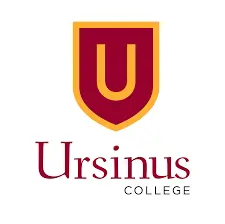
Creative Writing Award
The winner will be offered the opportunity to occupy during her or his first academic year the residence room where J. D. Salinger lived; and Leadership standing in the Ursinus writing community. The winner will be expected to join the previous award winners in reading subsequent creative portfolios, and will help the Office of Admission in selecting the next winner. Award winners are also expected to be prominent members of Ursinus’ Literary Society, The Lantern, and the creative writing community.
Categories: Critical Essay, Journalism, Nonfiction, Novel Writing, Personal Essay, Playwriting, Poetry, Portfolio, Research, Screenwriting, and Short Fiction
Organization: Ursinus College.
Deadline: January 15, 2025.
Categories: Critical Essay, Journalism, Nonfiction, Novel Writing, Personal Essay, Playwriting, Poetry, Portfolio, Research, Screenwriting, and Short Fiction.

The Sub Pop Loser Scholarship
Sub Pop Records is extremely proud to offer a grand total of $15,000 in college scholarship money to three eligible high school seniors. To apply you must submit a one-page essay using any combination of our questions as a guide (or write something completely your own, be inspired and creative!). Applicants must be residents of Washington or Oregon in pursuit of higher education.
Categories: Personal Essay
Organization: Sub Pop Records.
Deadline: March 23, 2025.
Additional awards: Second place scholarship of $5,000, third place scholarship of $3,000.
Categories: Personal Essay.

Islamic Scholarship Fund Program
Students who are Muslim or active members of the Muslim community may apply for the Islamic Scholarship Fund. The ISF awards multiple scholarships each year ranging from $3,000-$10,000, though the amounts and number of recipients will vary. Students must submit applications including essay questions, work samples, and letters of recommendation, and must also be majoring in an ISF-supported field related to media or politics.
Organization: Islamic Scholarship Fund.
Deadline: March 21, 2025.
Additional awards: Multiple awards of varying amounts will be given.

BBB Torch Talk Scholarship
BBB Foundation is a 501(c)3 organization dedicated to educating consumers on a variety of marketplace issues; this scholarship is in pursuit of that goal. Applicants must attend high school in Alaska, Hawaii, Idaho, Montana, Oregon, Washington or Western Wyoming, and will submit a 500-word essay for BBB’s online magazine Torch Talk on one of the given topics.
Organization: Better Business Bureau.
Deadline: March 16, 2025.

Flag House Scholarship Award
Do you know of an unsung history-maker in your community? Is there an organization in your community working to keep the legacy of a historically significant, but often overlooked, individual alive and relevant? Identify a person living or from the past whose professional work, activism, or personal story has made a significant impact on you or your community. Describe why their story is unique and explain how they have changed history. Response should be limited to 350 words.
Categories: Research and Critical Essay
Organization: The Star-Spangled Banner Flag House.
Deadline: March 26, 2025.
Categories: Research and Critical Essay.

Unpublished Writer's Award
The winner of this award receives $1,000, an invitation to accept the award at our annual awards ceremony, promotion on our website, and a feature of their work in our Magajournal and quarterly newsletter. Applicant must email an original, unpublished fiction work (short story or novel excerpt) not to exceed 2,000 typed words on double-spaced pages
Categories: Short Fiction and Novel Writing
Organization: Go On Girl! Book Club.
Deadline: March 31, 2025.
Additional awards: Invitation to awards ceremony, promotion through website and publications.
Categories: Short Fiction and Novel Writing.
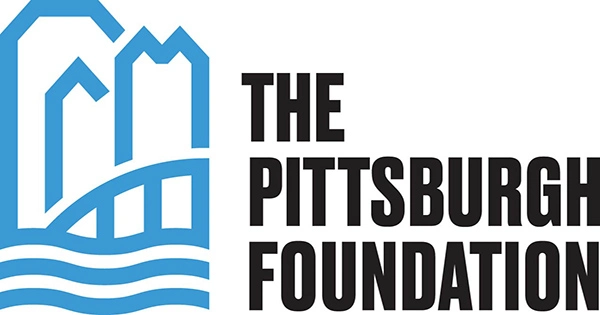
Marguerite Young Endowment Fund
The Marguerite Young Endowment Fund was established at The Pittsburgh Foundation to provide scholarships for students who plan to study theology. Candidates must be attending a Protestant seminary as a master of Divinity candidate, preparing for full-time ministry and/or be a seminary intern at a Protestant Church. Application must includes proof of this, as well as a personal essay.
Organization: The Pittsburgh Foundation.

Incight Scholarship
The INCIGHT scholarship is open to students in Washington, Oregon, and California who have a documented disability. Applicants must complete two detailed essay responses (video essays also welcome) in order to be eligible. The number of awards and total amount awarded will be determined during the selection process, and winners will be notified in June.
Organization: INCIGHT.
Deadline: April 01, 2025.

Christine B. Dexter Scholarship
The Christine B. Dexter Scholarship was established in honor of Christine B. Dexter after her passing from stomach cancer in 2008. This scholarship awards undergrad students a $2,000 scholarship towards their fall tuition. All recipients demonstrate a history of community service and resilience through their cancer journey.
Organization: Christine B. Foundation.

The AAF-Greater Evansville Scholarship
The AAF-Greater Evansville awards scholarships to deserving high school and/or college students yearly in April. To be eligible, students must plan to pursue a career in advertising, marketing, public relations or graphic design. Application varies yearly but includes various education details and personal statements.
Categories: Journalism
Organization: American Advertising Federation of Greater Evansville.
Categories: Journalism.

Aspiring Literary Scholar Award
The winner of this award receives $1,000, an invitation to accept the award at our annual awards ceremony, promotion on our website, and a feature of their work in our Magajournal and quarterly newsletter. Candidate must submit an essay not to exceed 800 words on the topic "The Power of The Written Word."

Dr. Jerry Pournelle Scholarship
The Dr. Jerry Pournelle Scholarship may be awarded to a candidate of any gender majoring in engineering, math, biological or physical sciences, or “science fiction as literature” as an eligible field of study. Applicants must submit a 500-1,000 word essay on one of several scientific topics.
Categories: Research, Personal Essay, and Critical Essay
Organization: The Heinlein Society.
Categories: Research, Personal Essay, and Critical Essay.

Dr. Yoji Kondo Scholarship
The Dr. Yoji Kondo Scholarship may be awarded to a candidate of any gender majoring in engineering, math, biological or physical sciences, or “science fiction as literature” as an eligible field of study. Applicants must submit a 500-1,000 word essay on one of several scientific topics.

Jack & Julie Narcolepsy Scholarship
Project Sleep’s Jack & Julie Narcolepsy Scholarship is a national scholarship program to support students with narcolepsy and idiopathic hypersomnia. Students must complete an application form that includes a response to the esssay question: "If you could go back in time and speak to yourself on the day you were diagnosed, what would you say? Write a letter to yourself on that day."
Organization: Project Sleep.
What are writing scholarships?
Writing scholarships are financial awards given to students based primarily on written work, though other factors are usually taken into consideration as well. Most writing scholarships involve a prompt or series of prompts to which applicants must respond. Some writing scholarships — especially those that award large amounts of money — require applicants to submit past writing samples, or even a full portfolio.
The good news is that, with so many writing scholarships to choose from, you don’t have to apply for any that are “out of your league.” Indeed, though most students have heard of writing scholarships, you may not realize just how many different varieties there are! Here are five of the most common types of writing scholarships, all of which you can find in this directory.
1. Personal essay scholarships
Personal essay scholarships involve writing on a topic related to your own experience. You’ll often see personal essay prompts like, “How have your experiences influenced your choice of major?” and “What are your career aspirations and how do you plan to achieve them?” Other prompts may ask you to write about a role model, a life-changing event, an aspect of your identity, etc. Suggested length is usually about 500-1,000 words, but varies depending on the level of detail requested and how many essay questions are provided.
Just about every scholarship these days has a personal essay component of some kind. This is because personal essay responses both demonstrate writing skills and give the judges a clear sense of each applicant’s goals. No one wants to throw away money on an aimless student — so if you’re applying for a personal essay scholarship, make sure to convey both your writing abilities and your ambitions in your work!
2. Critical essay scholarships
Critical essay scholarships are more in line with what students might consider “academic” essays. The prompts typically ask applicants to analyze works of literature. However, unlike open-ended English class essays, most critical essay scholarships provide a very specific prompt (e.g. “Examine The Great Gatsby in the context of its World War II-era revival”).
Critical essay scholarships can also involve non-literary subject matter. Some may ask applicants to evaluate a historical event or figure; others may ask them to defend their stance on a political or legal issue. Though the line between critical and personal essays can sometimes blur, for the purposes of this directory, we define critical essays as those that use evidence from an external source to prove a point.
3. Short fiction scholarships
Short fiction scholarships include scholarships for short stories, one-act plays, poetry, and any other form of fiction that isn’t a novel or full-length script. Short fiction scholarships tend to be easier to find than long-form fiction scholarships, since most judging panels don’t have time to read more than a few thousand words per entry. Therefore, if you write fiction and you’re hoping to nab yourself a scholarship, this category is the way to go! (That said, if you’re a hardline novelist, some places will accept a sample chapter or two as short fiction entries.)
4. Journalism scholarships
Journalism scholarships are for students interested in pursuing a career in news, magazine, and/or online journalism. These scholarship applications almost always ask for writing samples to show the candidate’s interest. Depending on the organization, they may prefer topical news reports, informative articles, thinkpieces, or a mix. Some journalism scholarships provide a prompt and ask applicants to write a new article, but the focus is usually on samples. Speaking of which…
5. Portfolio scholarships
Portfolio scholarships are the most rigorous kind of writing scholarship, requiring a substantial body of work from each applicant — usually 5-10 pieces of writing, if not more. The upside is that awards for portfolio scholarships tend to be pretty sizable, and may even cover your entire tuition!
If you decide to apply to a portfolio scholarship, make sure you have several strong pieces of work in your oeuvre, and consider writing a few new pieces as well. What you shouldn’t do is rush through a dozen new pieces to throw together as a portfolio. If you don’t have samples at the ready from previous assignments or projects, you’ll be better off applying to a less intensive writing scholarship.
Why apply to writing scholarships?
Applying to writing scholarships is a huge undertaking, especially if you’re pursuing multiple scholarships at once. It can sometimes feel like the effort isn’t worth it, or that you have little chance of actually winning any awards. But in truth, submitting to writing scholarships is one of the best investments you can make in your education, your creative writing skills, and your professional life.
Scholarships for larger amounts do attract more applicants, but that doesn’t mean they’re impossible to land — only that you have to work a little harder to stand out. And you can definitely sway the odds in your favor by applying to lots of small scholarships ($500 or less) for which you’ll have fewer competitors. Remember that every little bit helps! For example, if you plan on taking out student loans, even a $500 scholarship could save you much more in interest down the line.
Another compelling reason to apply to writing scholarships is that oftentimes, you’ve already done the work, or the work required is minimal. For scholarships that require writing samples, you’ll simply submit what you’ve already written in the past — and even for scholarships with specific prompts, you rarely have to write more than a couple of pages. If you were seriously committed, you could apply to a scholarship every day, spending a single concentrated evening on each application.
Jumping off that thought, as English majors love to say: the more writing scholarships you apply for, the better a writer you’ll become. Writing tons of scholarship essays will make you a much more creative and efficient writer. Not only will this help with your personal writing projects, but it will also be invaluable to your education and even your career! Writing is a crucial skill for every major — you’ll always have to write papers and emails to professors, after all — and even if you don’t plan to pursue a writing-based job, you'll still need writing skills to polish your résumé.
Finally, remember that there’s a writing scholarship out there for everyone, no matter what your interests or intended field. This directory includes plenty of creative writing scholarships, yes; but there are also personal essay scholarships for future doctors, lawyers, salespeople, and so much more. You have nothing to lose by giving it a shot, so why not start searching for your dream writing scholarship today? (And if you’re unsure about your writing skills, you might benefit from some of the resources below.)
Resources to strengthen your writing skills
- 20 Writing Tips to Help You Become A Better Writer Today
- How to Stop Procrastinating and Build A Solid Writing Routine
- What is Creative Nonfiction? Memoirs, Literary Journalism, and More!
- How to Write a Memoir: Tell Your Amazing Story in 9 Steps
- How to Write a Fantastic Short Story In 7 Steps
- How to Self-Edit Your Manuscript Like a Pro
- 700+ Creative Writing Prompts to Inspire You
- 100+ Creative Writing Exercises for Authors
Join a community of over 1 million authors
Reedsy is more than just a blog. Become a member today to discover how we can help you publish a beautiful book.

Save your shortlist
Enter your email address to save your shortlist so that you don't lose it!
By continuing, you will also receive Reedsy's weekly publishing tips and access to our free webinars.

We sent over your shortlist. Thank you for using Reedsy's Writing Scholarships Directory, happy publishing! 🙌
Bring your stories to life
Our free writing app lets you set writing goals and track your progress, so you can finally write that book!

1 million authors trust the professionals on Reedsy. Come meet them.
Enter your email or get started with a social account:
FREE TRAINING: How I Secured 6-Figures in Scholarships & Graduated Debt-Free
The Scholarship System
Paying for college begins here
10 Common Scholarship Essay Questions and How to Answer Them
Scholarships & Financial Aid
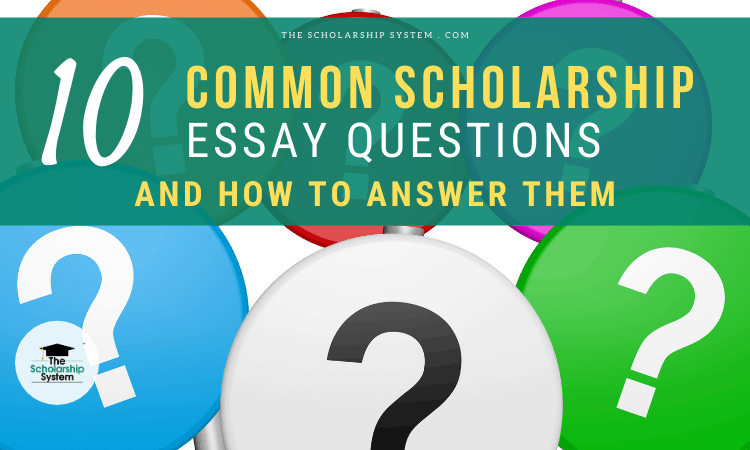
Updated on July 15th, 2022
When your student applies for scholarships, writing the essay often feels like the most challenging part. Luckily, it doesn’t have to be. By learning about common scholarship essay questions and how to answer them, your student can be prepared for most of the topics they’ll need to address.

Knowing how to answer common scholarship essay questions is only part of the battle. You also have to track down great scholarships to pay for college. If you and your student want to learn more about exciting scholarship opportunities, sign up for our free college scholarship webinar ! Just head to http://thescholarshipsystem.com/freewebinar and reserve your spot today .
If your student wants to get ahead of the curve and write winning scholarship essays , here’s a look at ten common scholarship essay questions and how to tackle them.
- 1.1 1. Tell Us About Yourself
- 1.2 2. How Will This Scholarship Make a Difference for You?
- 1.3 3. Can You Tell Us About a Time You Failed? What Did You Learn from That Experience?
- 1.4 4. Tell Us About a Contribution You’ve Made to Your Community
- 1.5 5. What Are Your Academic (or Professional) Goals?
- 1.6 6. Tell Us About a Time Where You Stepped Up as a Leader
- 1.7 7. Who Has Been Your Biggest Influence (or Inspiration)?
- 1.8 8. Why Do You Want to Go to College?
- 1.9 9. How Are You Planning on Financing Your College Education?
- 1.10 10. Why Do You Deserve This Scholarship?
- 2 Using Common Scholarship Essay Questions to Prepare
1. Tell Us About Yourself
This is possibly one of the trickiest college scholarship essays to write, not because it’s complicated, but because it’s so broad. Students have a lot of freedom with this prompt, so it’s easy to become overwhelmed about how to proceed.
Typically, students shouldn’t just give an overview of their life stories. Instead, they need to provide the committee with insights about their passions and drives, events that shaped their perspective, and relevant successes or achievements.
It’s also wise to be a bit future-focused, discussing not just where they’ve been but where they hope to go. Students can touch on valuable personality traits along the way, too, as that helps the reader gauge who they are as a person.
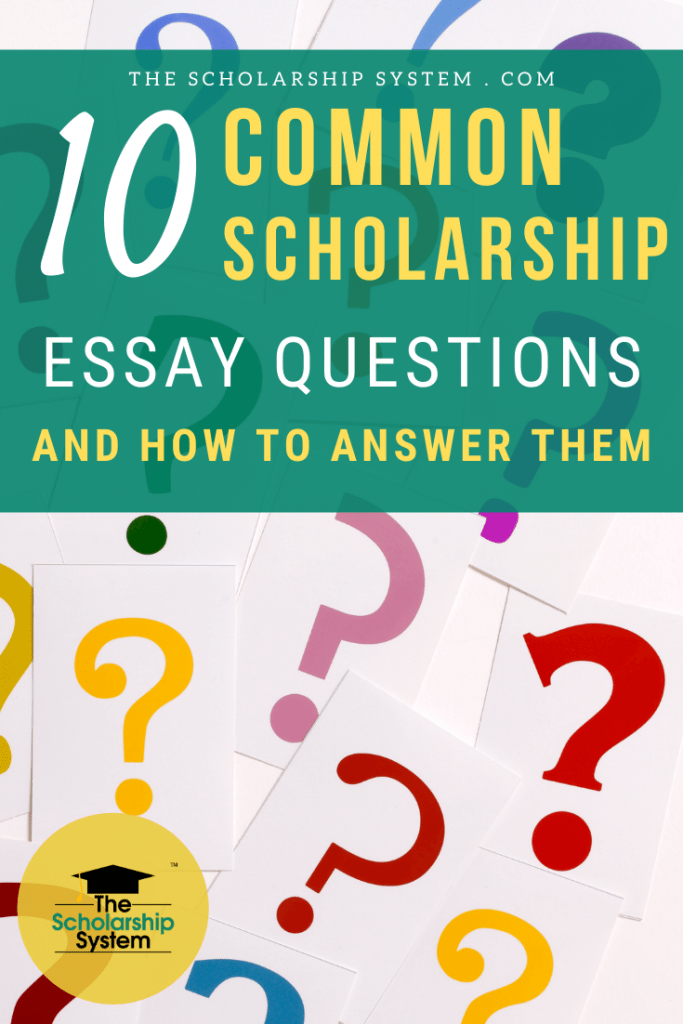
2. How Will This Scholarship Make a Difference for You?
Generally, students have a few options for addressing this question. First, they could showcase how the scholarship helps them overcome a relevant financial hardship. This can include being able to afford tuition, get needed equipment or supplies, or access a program at a college that may otherwise be out of reach.
Second, they could concentrate on how the scholarship will help them achieve their academic or professional goals. For example, your student might want to discuss how the award would allow them to pursue their preferred field.
Students should focus on how the scholarship eliminates roadblocks, though the exact type of obstacle can vary. Additionally, they should discuss what they’ll be able to achieve if they receive the award, both in the short- and long-term.
3. Can You Tell Us About a Time You Failed? What Did You Learn from That Experience?
For many students, even figuring out how to start a scholarship essay introduction for this topic is hard, let alone writing the whole thing. It’s difficult discussing a failure with others, so many students hold back if they are given this prompt.
However, honesty is the best policy. Additionally, even when talking about a failure, it’s possible to keep the essay positive.
Students should start by outlining the scenario and giving an overview of how the failure occurred. The misstep can be academic, personal, or professional, as long as it’s clear that something went wrong along the way.
After the overview, it’s all about a quick pivot. Students should explain the lessons they learned and what they would do differently if faced with a similar situation again. That helps them demonstrate their self-awareness and growth, along with their ability to persevere.

4. Tell Us About a Contribution You’ve Made to Your Community
This scholarship essay prompt is incredibly common for volunteering scholarships or awards focused on service. Students need to share insights about their community service-oriented activities, as well as the positive impact created by their participation.
Additionally, it’s smart for students to spend some time explaining how the experience impacted them. They may also want to touch on any plans they have to continue to remain active in their community, as that can help them stand out.
5. What Are Your Academic (or Professional) Goals?
With this common scholarship essay question, students need to clearly outline what they want to achieve, either academically or professionally, depending on exactly what they are asked. Usually, it’s best to start off with the basics. Students should explain what they want to study or the career path they hope to have.
However, they shouldn’t stop there. It’s also wise to dig a bit deeper, diving into precisely what motivated them to head in this direction. Some students do this by sharing their epiphany moment, while others talk about how it’s the culmination of a life-long passion. As long as it paints a great picture, any approach is potentially a winner.

6. Tell Us About a Time Where You Stepped Up as a Leader
Leadership is a hot topic for college scholarship essays. Many committees ask questions like this one to see what applicants bring to the table. Usually, your student needs to provide a clear example of when they took on a leadership role.
There are a lot of options for approaching this. Heading up a school project counts, as well as captaining a sports team. Coordinating volunteer efforts may work, along with a wide variety of work-related activities.
Again, exactly what your student chooses is less important than how they describe it. It’s all about sharing a story, ensuring the reader can get a good gauge on what happened and how your student’s involvement made a difference.
7. Who Has Been Your Biggest Influence (or Inspiration)?
Many scholarship essay questions want students to talk about their heroes. While it may seem odd to ask students to discuss someone other than themselves, it’s actually a great way to learn more about an applicant’s passions.
As they describe why the person influenced or inspired them, they incidentally talk about how they are motivated, their priorities, and their values. It also allows the reader to learn more about what shaped your student’s goals and aspirations, which can be quite enlightening.
Ideally, students want to be story-oriented. While they can certainly discuss the person’s traits and background, the focus should largely be on moments that inspired or influenced their way of thinking. That makes the essay more meaningful.

8. Why Do You Want to Go to College?
For some students, this question is surprisingly tough. Many students saw college as a must from a relatively young age, essentially viewing it as anything as optional. However, students do have choices about how they move forward after high school.
Scholarship committees want to know that heading to college isn’t an afterthought or something a student is doing solely because they were pressured in that direction. Ideally, students should discuss personal motivations or goals that made college the right choice for them. That way, their passion can shine through.
9. How Are You Planning on Financing Your College Education?
If a scholarship is focused on financial need, your student may face questions about how they intend to fund their education. This can be a difficult topic, particularly for students who may not be able to afford school without outside support, such as scholarships or grants. It’s hard to talk about financial hardship, but this question makes it necessary.
Students should actually start their essay by giving the committee insight into their situation, particularly regarding personal or household circumstances that make affording college difficult. After the overview, students should outline all of their efforts to secure enough funding. That can include everything from applying to scholarships, exploring work-study, getting a part-time job, or anything else.
Often, scholarship committees appreciate it when students are taking every chance to find ways to pay for college. It lets them know that the student is passionate enough to go the extra mile and demonstrates that they aren’t afraid of challenges if it means achieving their goals. So, students should touch on everything they are doing to make their college dream possible.

10. Why Do You Deserve This Scholarship?
Writing an essay about why they deserve a scholarship can be hard for any student. However, it’s a topic they need to be ready to discuss. This is one of the most common scholarship essay questions around.
Previously, The Scholarship System took a deep dive into how to write an essay on “Why I deserve this scholarship,” making that a great resource for any student who wants to prepare. As an overview, it’s about showcasing their perspective without coming across as arrogant and discussing achievements (academic or otherwise) that highlight why they are a standout applicant.
Using Common Scholarship Essay Questions to Prepare
Simply knowing what the common scholarship essay questions are usually isn’t enough. Instead, students should take extra steps to prepare to write their essays.
First, it’s wise to spend a little time brainstorming about the topics. That way, students can develop several ideas that they may want to explore and see if one approach resonates more than another.
Second, checking out some scholarship essay examples that won money is an excellent idea. This helps students learn more about what scholarship committees connect with, as well as more about how to tackle certain topics.
Finally, it’s wise to learn more about essay writing techniques. Along with reviewing how to write scholarship essays , it doesn’t hurt to research college personal statements , as those can be very similar to scholarship (and college application) essays. Similarly, checking out scholarship essay formats is a smart move. It will help your student figure out how to start a scholarship essay introduction, how to end a scholarship essay, and everything in between.
By doing that additional research, they’ll have as much information as possible. And, in the end, that could increase the odds that their essay will be a winner.
Related Videos:
- 7 College Scholarship Essay Ideas to Win More Funding
- How to Reuse Scholarship Essays & Win Over and Over

- Pinterest 372
March 9, 2021 at 6:35 am
Thanks for sharing this nice piece of information i personally believe scholarships are very improtant for every student
Leave a Reply Cancel reply
Your email address will not be published. Required fields are marked *
Save my name, email, and website in this browser for the next time I comment.
Subscribe via email
Popular posts, how to write winning scholarship essays, how to write an amazing scholarship resume, 75 easy ways to save money in college.
- Grades 6-12
- School Leaders
NEW: Classroom Clean-Up/Set-Up Email Course! 🧽
10 Winning Scholarship Essay Examples From Real Students
Make your application shine.

Writing a scholarship essay can be intimidating. The competition is fierce and the stakes are high, so students are bound to feel the pressure. It may be helpful, therefore, to look at essays that were successful. What did those students do to impress the committee? These scholarship essay examples will give you a better idea of how to make an application shine!
Tips for Writing a Scholarship Essay
We’ve put together a whole guide for how to write a scholarship essay , so if you haven’t read it already, definitely give it a look! In addition, here are some quick tips to help students get started.
Carefully read the rules
The last thing you need is to be disqualified from winning a scholarship because you didn’t do the right thing.
Start early
Don’t wait until the last minute to start researching and applying for scholarships. Give yourself plenty of time to work through the process.
Get to know the provider
Think of the scholarship provider as your target audience. You want to tailor your essay to impress them, so do your research. What kinds of candidates are they looking for? What causes do they support? Dig deep for the information you need!
Think about who you are, what you want to say, and how to appeal to the scholarship committee. Write everything down and then choose the best ideas.
The scholarship committee will be reviewing many applications. How can you make yours unforgettable? Highlight your strongest assets, share hard lessons if they showcase your growth as a person and/or student, and be honest. Never lie in a scholarship essay!
Be professional
Consider this the most important academic paper you’ve ever written. Don’t use slang or casual language. Submit a properly formatted essay that’s been well-edited and proofread by multiple people.
One last tip
Don’t reuse scholarship essays! Yes, it’s time-consuming, but students need to put the same effort into every application. Use the same process and it will get faster and easier every time!
Scholarship Essay Examples
Afc visionary scholarship essay by nicole kuznetsov.
Award Amount: $5,000
Essay prompt: Why do you want to go to college? Why is it important to you?
Why it was successful: The beauty of this essay is that it’s well-organized and simple. Nicole Kuznetsov chose to outline her story by using chronology and provided a clean, concise story following a linear path.
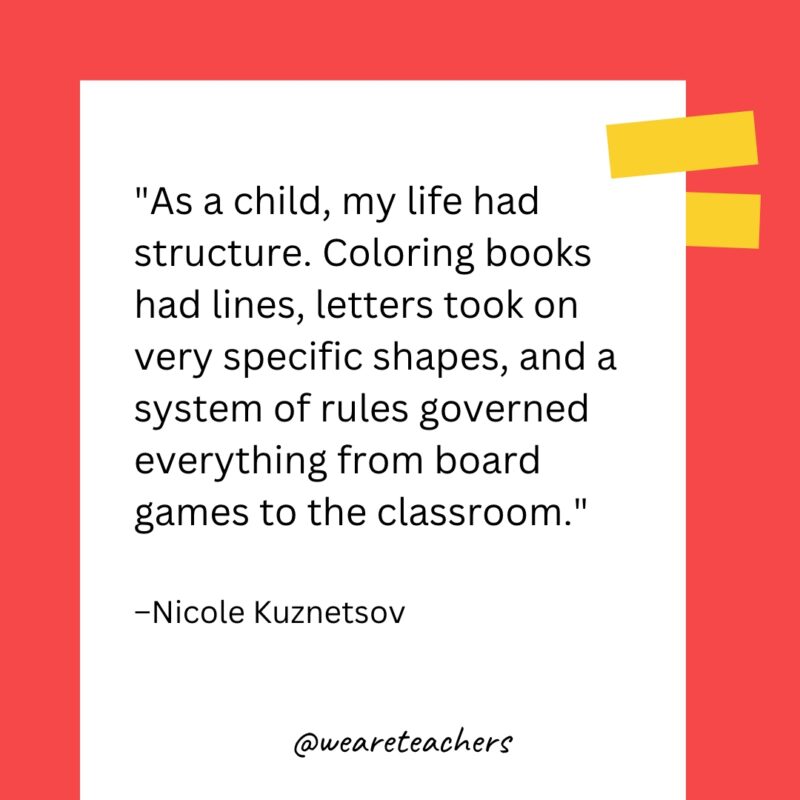
North Coast Section Foundation Scholarship Essay by Christine Fung
Award Amount: $1,000
Why it was successful: Christine Fung masterfully shared how her upbringing instilled strong values, a love for education, and a passion for medicine .
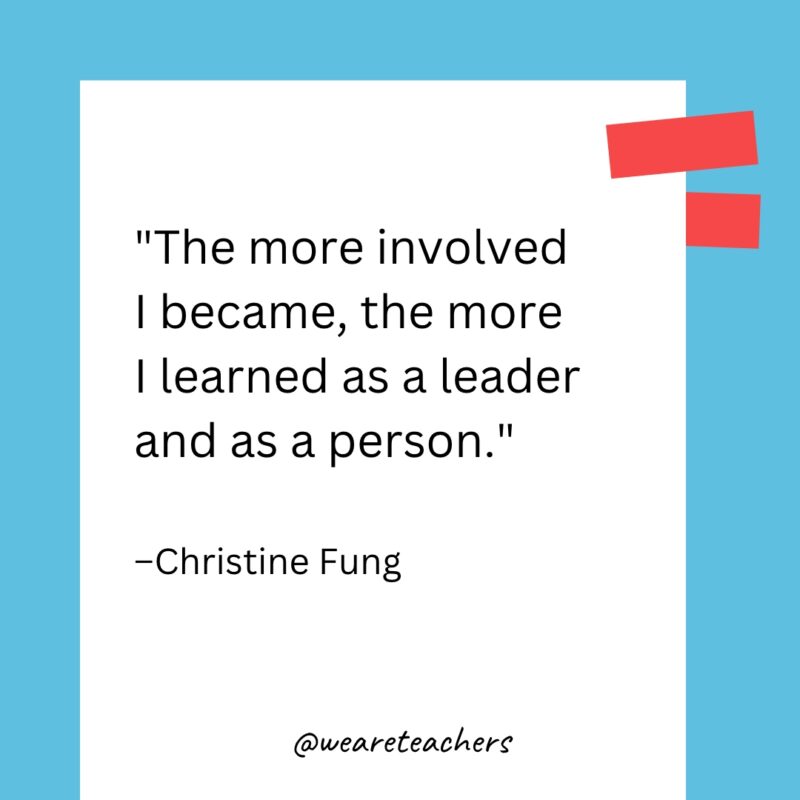
The Bill Browning Scholarship Essay by Gabby DeMott
Award Amount: $10,000
Essay prompt: Discuss an accomplishment, event, or realization that sparked a period of personal growth and a new understanding of yourself or others.
Why it was successful: Gabby DeMott shared her experiences with personal growth and overcoming fears in Germany. She also appealed to the very human feeling of wanting to belong in a way that was inspiring.
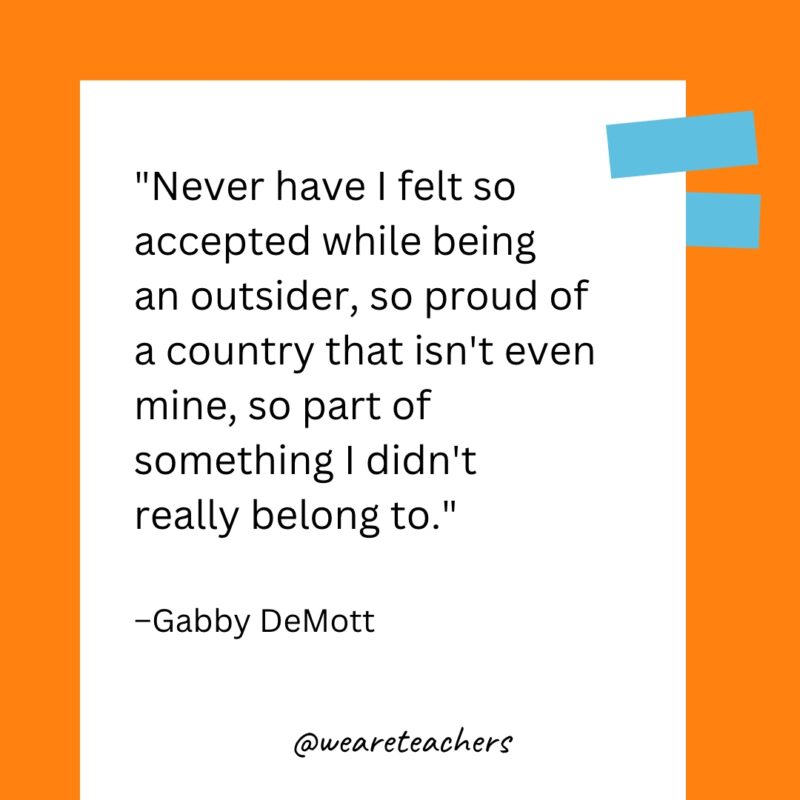
Life Happens Scholarship Essay by Emily Trader
Award Amount: $15,000
Essay prompt: How has the death of a parent or guardian impacted your life financially and emotionally? Be sure to describe how the loss of your parent/guardian impacted your college plans, and explain how the lack of adequate (or any) life insurance coverage has impacted your family’s financial situation.
Why it was successful: Emily Trader fully addressed the prompt in honest, beautiful detail. She knew her audience and tailored her essay to appeal to them while telling her compelling story.
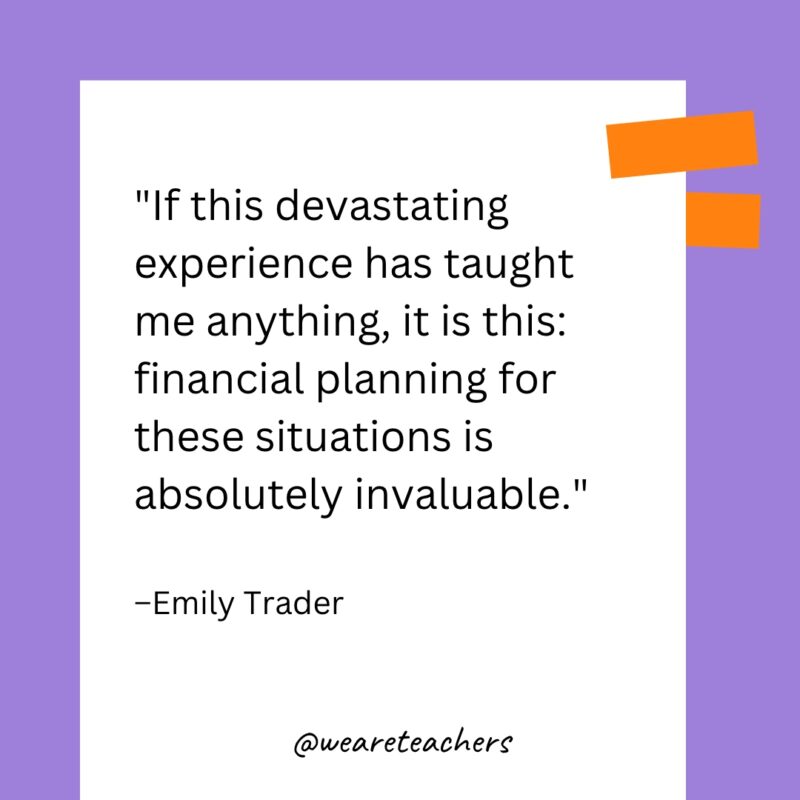
Change a Life Foundation Scholarship Essay by Isabella Mendez-Figueroa
Essay prompt: Please explain how your experience volunteering and participating in community service has shaped your perspective on humanity. Elaborate on how these experiences have influenced your future ambitions and career choice.
Why it was successful: Isabella Mendez-Figueroa shared an empowering story about her parents overcoming financial adversity so that she and her sister could be the first in their family to go to college.
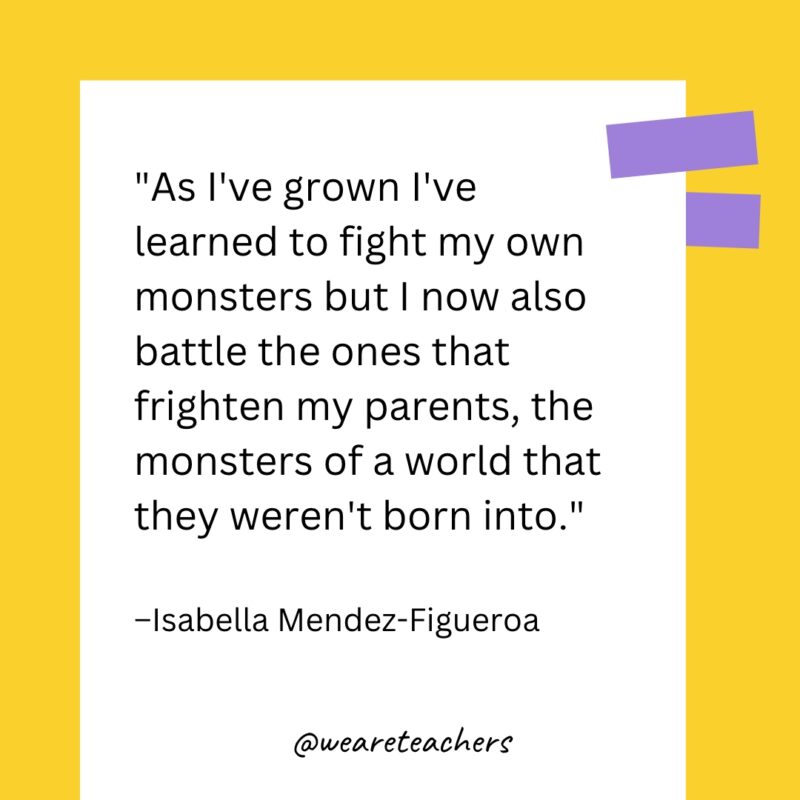
Giva Scholarship Essay by Joseph Lee
Essay prompt: Who is (or what makes) a good doctor?
Why it was successful: Joseph Lee offered a captivating , personal story that was essentially a list of things that make someone a good doctor without it feeling boring or calculated.
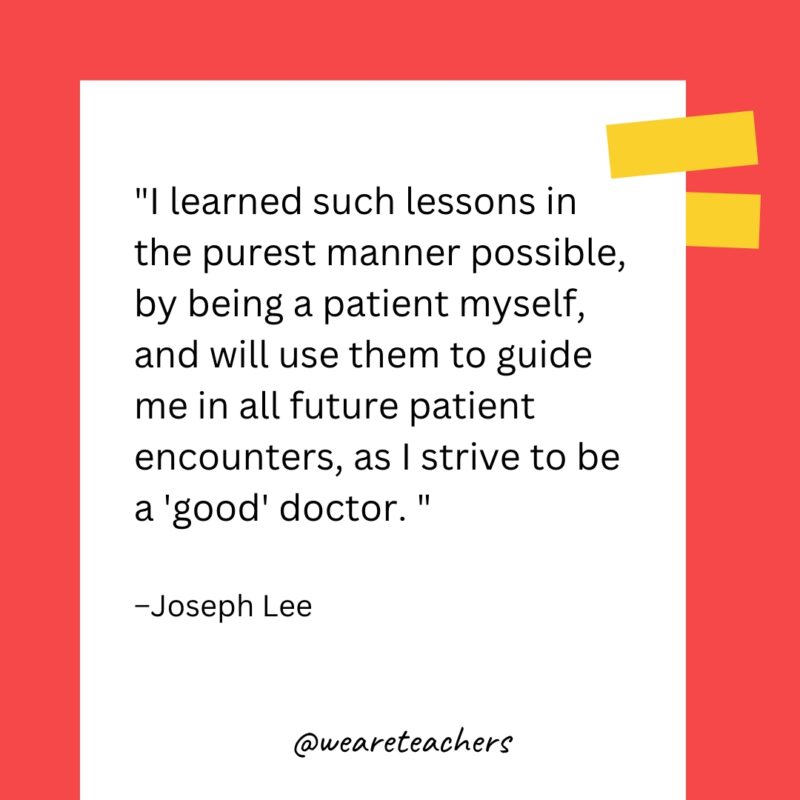
New York University College of Arts and Science Scholarship by Ana
Award amount: $39,500
Essay prompt: Explain something that made a big impact in your life.
Why it was successful: Ana discussed how early experiences w ith learning difficult things has contributed to her passion for teaching and supporting students.

The Fund for Education Abroad Rainbow Scholarship Essay by Steven Fisher
Award amount: $7,500
Essay prompt: The Fund for Education Abroad is committed to diversifying education abroad by providing funding to students who are typically under-represented in study abroad. Please describe how you and/or your plans for study abroad could be viewed as under-represented.
Why it was successful: Steven Fisher’s powerful essay connected his realizations about his own sexual identity with embracing the beautiful diversity found all around the world.
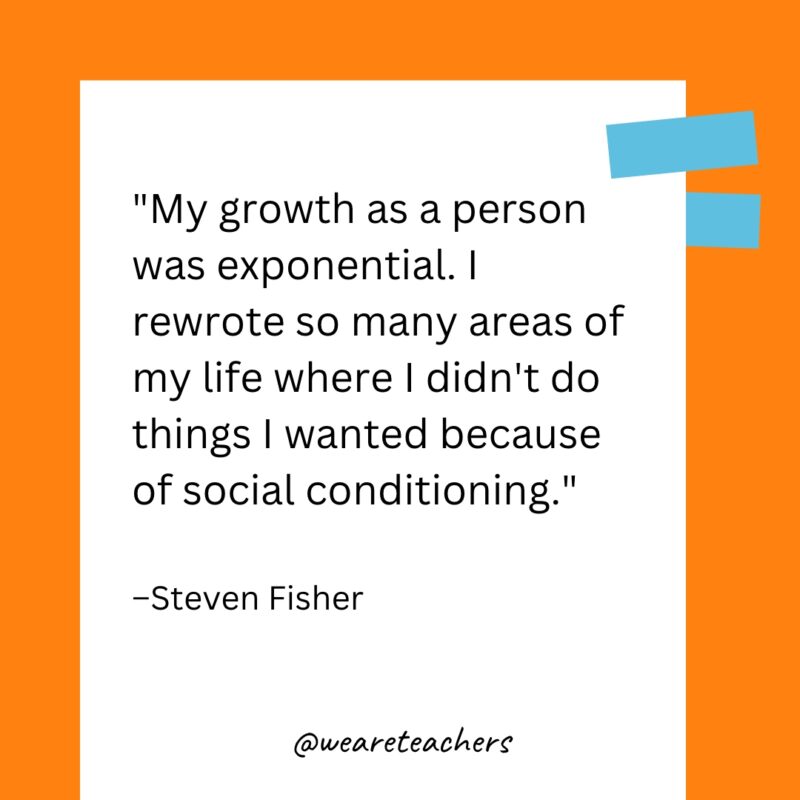
Women’s World Banking Founder’s Scholarship Essay by Rosaisha Ozoria
Essay prompt: Write about your hopes for the future of women and girls worldwide.
Why it was successful: Rosaisha Ozoria focused on a very specific topic , financial literacy for Hispanic women, and emphasized its importance and relevance to her own life.
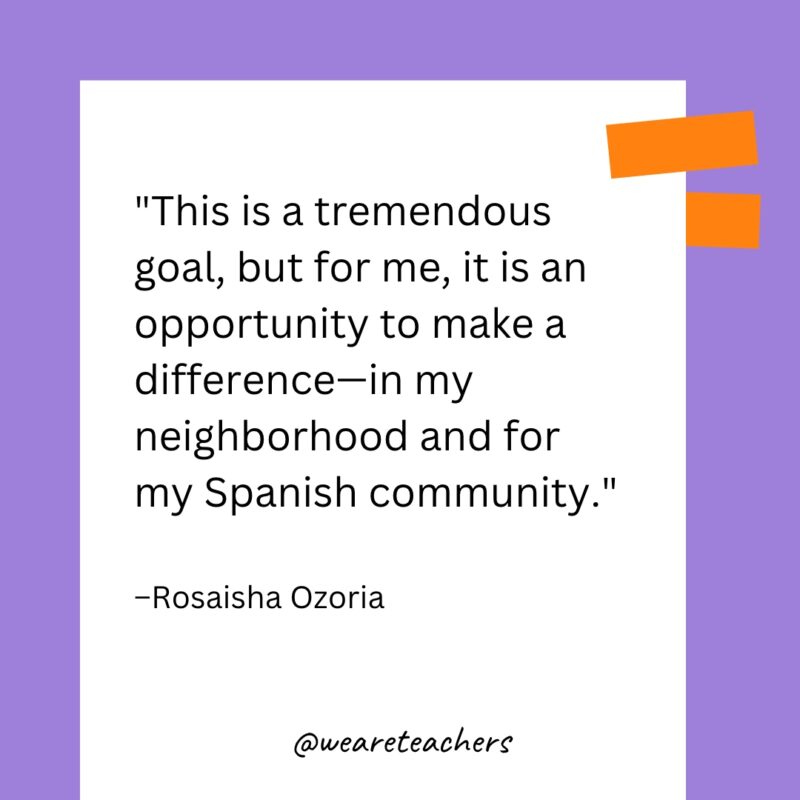
The Millennium Gates Last Dollar Scholarship Essay by Famyrah Lafortune
Award amount: $3,500
Essay prompt: Education is the most powerful weapon which you can use to change the world.” —Nelson Mandela Describe a change you would like to make in the world. Tell us about how you would plan to make that change, and what obstacles you might encounter along the way.
Why it was successful: Famyrah Lafortune starts with a strong statement about ending racial inequality and then details the steps she’ll take to make it happen.
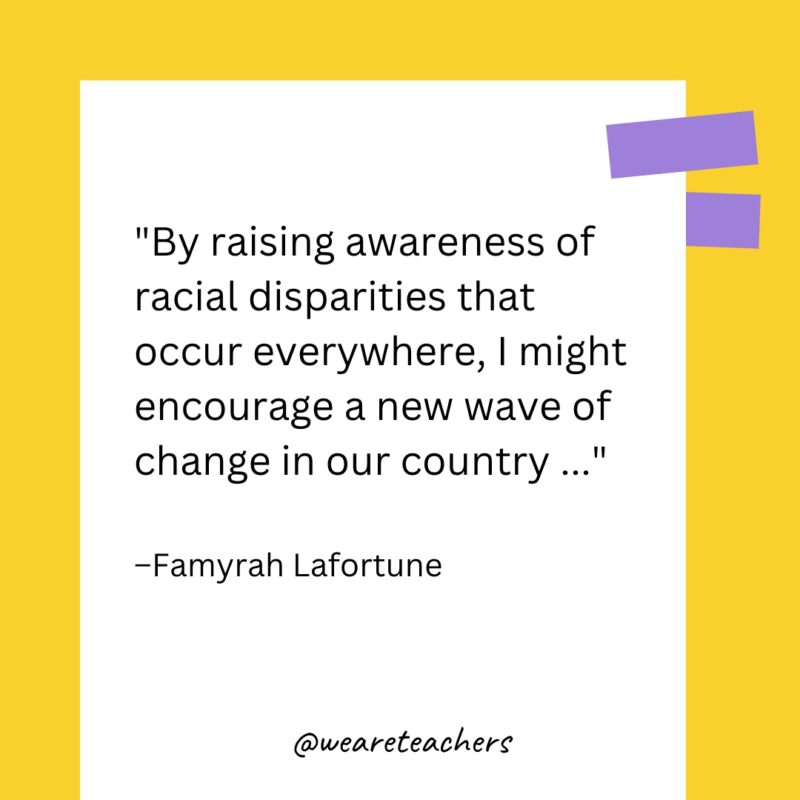
Do you have any great scholarship essay examples? Share them below!
Plus, check out the ultimate guide to college scholarships, want more suggestions be sure to subscribe to our newsletters ..
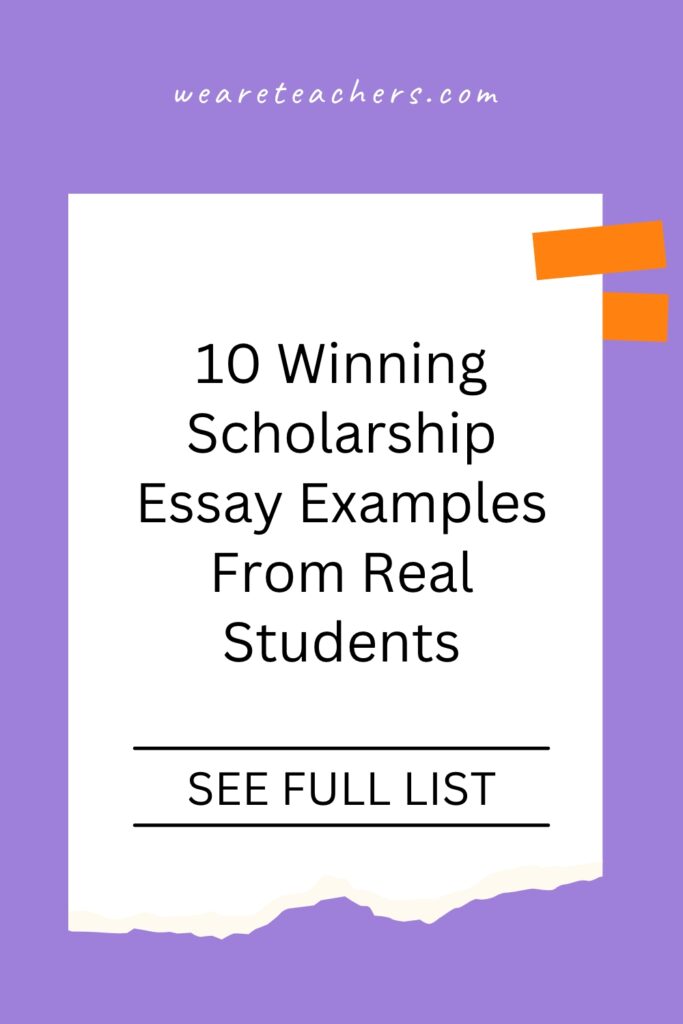
You Might Also Like

How To Write a Scholarship Thank-You Letter (Including Examples)
Always show appreciation to donors. Continue Reading
Copyright © 2024. All rights reserved. 5335 Gate Parkway, Jacksonville, FL 32256
Essay Papers Writing Online
Opportunities for students – essay writing scholarships.

Are you a student seeking financial aid for your education? Essay writing scholarships can be a valuable resource to help you achieve your academic goals. These scholarships provide opportunities for students to showcase their writing skills and creativity while also earning financial support for their studies.
Whether you’re a high school student preparing for college or a graduate student pursuing advanced degrees, essay writing scholarships can make a significant difference in easing the financial burden of education. In this guide, we will explore the top essay writing scholarships available to students, along with tips and strategies to help you craft winning essays that stand out to scholarship committees.
How to Win Essay Writing Scholarships
Winning essay writing scholarships requires careful planning and dedication. Here are some tips to help you increase your chances of success:
Understand the Requirements
Before you start applying for essay writing scholarships, it is crucial to understand the requirements set forth by each scholarship program. Pay close attention to the eligibility criteria, word count, topic, deadline, and any additional materials that may be required.
Make sure to thoroughly read through the guidelines provided by the scholarship provider to ensure that your essay meets all the necessary criteria. Failure to adhere to the requirements may result in disqualification, so take the time to familiarize yourself with the specifics of each scholarship opportunity.
Research Essay Topics
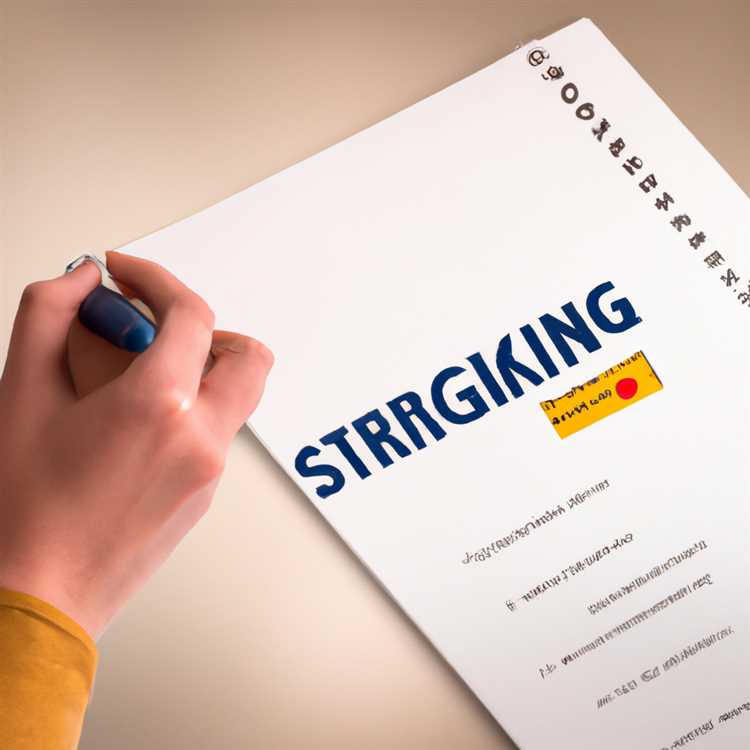
When it comes to writing a research essay, choosing the right topic is crucial. Here are some interesting research essay topics to consider:
These topics provide ample room for research and analysis, allowing you to delve deeper into important issues that can make your research essay stand out.
Develop a Strong Thesis
One of the most crucial elements of a winning scholarship essay is a strong thesis statement. Your thesis should clearly state the main idea or argument of your essay and guide the reader on what to expect. A well-developed thesis sets the tone for your entire essay and helps you stay focused on the main point you want to make. Make sure your thesis is clear, concise, and specific. Avoid vague statements or generalizations that could weaken your argument. Take the time to brainstorm and refine your thesis until it accurately reflects the central message of your essay.
Write a Compelling Essay
Writing a compelling essay is the key to winning essay writing scholarships. Here are some tips to help you craft an outstanding essay:
- Choose a Strong Topic: Select a topic that is meaningful to you and showcases your unique experiences and perspective.
- Outline Your Ideas: Create a clear outline before you start writing to organize your thoughts and ensure a logical flow.
- Capture the Reader’s Attention: Start with a powerful introduction that grabs the reader’s interest and sets the tone for your essay.
- Show, Don’t Tell: Instead of simply stating facts, use vivid details and examples to illustrate your points and make your essay more compelling.
- Be Honest and Authentic: Write in your own voice and be sincere about your experiences and aspirations.
- Edit and Revise: Proofread your essay carefully for grammar and spelling errors, and revise as needed to ensure clarity and coherence.
- Seek Feedback: Ask teachers, mentors, or peers to review your essay and provide constructive feedback before submitting it.
By following these tips and putting in the effort to write a compelling essay, you can increase your chances of winning essay writing scholarships and securing valuable financial aid for your education.
Revise and Edit Your Work
Once you have written your essay, it is crucial to take the time to revise and edit it thoroughly. Here are some tips to help you polish your essay to perfection:
1. Review for Clarity and Coherence: Make sure your ideas flow logically from one paragraph to the next. Check for any inconsistencies or gaps in your argument.
2. Check for Grammar and Spelling Errors: Use spell check and grammar check tools to catch any typos or grammatical mistakes. Additionally, consider asking a friend or teacher to review your essay for any errors you may have missed.
3. Make Sure Your Essay Addresses the Prompt: Double-check that your essay tackles the essay prompt directly and provides a clear response to the given topic.
4. Trim, but Do Not Cut Out Vital Information: While it is essential to keep your essay concise, ensure you do not remove crucial details that support your argument.
5. Consider the Overall Structure: Ensure your essay has a strong introduction, body paragraphs that support your thesis, and a conclusion that ties everything together.
6. Read Your Essay Aloud: Reading your essay aloud can help you catch awkward phrasings or unclear sentences that may need revision.
By taking the time to revise and edit your work thoroughly, you can elevate the quality of your essay and increase your chances of winning essay writing scholarships.
Submit Your Application
To apply for these top essay writing scholarships, carefully review the eligibility criteria and guidelines provided by each scholarship provider. Make sure to prepare all the necessary documents, including your essays, letters of recommendation, transcripts, and any other required materials.
Once you have completed your application and gathered all the required materials, submit your application before the deadline. It is crucial to double-check all the information provided in your application to ensure accuracy.
Remember to follow the application instructions closely and pay attention to any specific requirements outlined by each scholarship program. Submitting a well-crafted and compelling application will increase your chances of winning the financial aid you need for your education.
Follow Up and Stay Positive
After submitting your application for an essay writing scholarship, it’s important to follow up with the organization or institution to ensure that your application is complete and has been received. You can politely inquire about the status of your application and ask if there are any additional materials that need to be submitted.
It’s also crucial to stay positive throughout the scholarship application process. Rejection is a common part of applying for scholarships, and it’s essential to not let it discourage you. Keep a positive attitude, learn from each application, and continue to improve your writing skills. Remember, each application is an opportunity to showcase your talents and qualifications.
Related Post
How to master the art of writing expository essays and captivate your audience, convenient and reliable source to purchase college essays online, step-by-step guide to crafting a powerful literary analysis essay, unlock success with a comprehensive business research paper example guide, unlock your writing potential with writers college – transform your passion into profession, “unlocking the secrets of academic success – navigating the world of research papers in college”, master the art of sociological expression – elevate your writing skills in sociology.
Are you seeking one-on-one college counseling and/or essay support? Limited spots are now available. Click here to learn more.
35 Common Scholarship Interview Questions (with Answers) – 2024
May 24, 2024
If you’re applying to college, you undoubtedly know that tuition prices have only been rising in recent years. Between moving, room and board, and student fees, attending college can cost a small fortune! [i] As such, scholarships are one way that you can mitigate some of the costs of attending college. [ii] There are several types of scholarships that you can find , including merit-based scholarships , fellowships, leadership scholarships, community and local scholarships, identity-based scholarships, professional scholarships, and competitive scholarships. [iii] Each will have different requirements and strategies for qualification: some are automatically granted by financial need, test scores , or place of residence. Some will require scholarship essays , recommendation letters , or lengthy application forms. And finally, many of the most competitive scholarships require an additional step: an interview. These will include many common scholarship interview questions, and in this article, we’ll detail how you can best prepare to answer these questions.
Preparing for How to Answer Scholarship Interview Questions
There is no single correct way to answer scholarship interview questions, but before you begin, make sure you’re following these five guidelines:
Have confidence in yourself
If you’ve made it to an interview, it means that the scholarship decisions committee has already decided you are a promising candidate for the award, and that your application has beat out other applicants’ submissions. Studies have actually shown that interviewees who self-promote tend to perform better in interviews. [iv] But even if you’re not naturally self-assured, take heart! The following tips on how to answer scholarship interview questions can provide a general framework for success and help you practice before your upcoming interviews. [v]
Practice makes perfect
With a parent, friend, school or application counselor, or other trusted advisor, spend time going over these scholarship interview questions and your potential responses. Remember that you want your responses to seem natural (not like you’ve memorized them or are performing them!). [vi]
Do your research
Learn everything you can about the scholarship to which you’ve applied. Does the scholarship have a particular mission statement? Who are some previous scholarship winners and what made them stand out? What precise amounts are being given away by this scholarship? This is also a good moment to think about “fit.” Specifically, based on the criteria for this scholarship’s winners, why are you the best candidate to receive this grant?
Common Scholarship Interview Questions (Continued)
Your interview time may be very short, and you want to provide as much information about yourself as possible with the timeframe you have. During rehearsals, try the “Bottom Line Up Front” ( BLUF ) strategy as you craft your responses to all of these scholarship interview questions.
Don’t panic – pivot
You may be wondering, “What happens if I can’t answer a question or haven’t practiced it?” Never fear! The good news is that most scholarship interview questions can be sorted into general categories by similar topics, with comparable strategies on how to answer each question within a category. For instance, if you practiced answering, “Tell us about one of your personal achievements,” but the interviewer asks, “What are some of your biggest accomplishments?” you should be able to pivot fairly quickly and answer the actual question with the same strategy you practiced for a different question. Below, we’ve split the top 35 common scholarship interview questions into eight categories for just this reason!
For each category of scholarship interview questions below, we’ve provided a few strategies for brainstorming robust answers. Make sure you can provide answers and examples for each individual question, but even more importantly, remember the successful moves that accompany each question category. Good luck!
Category 1: Very Open “About Me” Scholarship Interview Questions
1) Tell us about yourself.
2) Describe yourself in three words. / How would you describe yourself?
3) What is something unique about you? / What is something about you that no one else knows?
4) Tell us a few things about yourself that didn’t appear in your application materials.
You’re almost guaranteed to get one of these hyper-general interview questions as your interviewer begins questioning you. These questions may take the longest to prepare for because they are so open-ended. As you prepare, remember the three C’s: concision, color, and confidence.
- Concision : It can be soooo tempting to keep on answering this type of question for hours. Don’t! Instead, have some particular examples or biographical details ironed out, polished, and ready to list quickly and concisely. These can be facts about your work or school experience, your cultural background, and any passions or extracurriculars that are important to you. Another quick way to think of a list might be “past, present, and future.” Where have you been? What are you up to now? And where would you like to see yourself in the future?
- Color : Provide rich details that make you stand out as a unique candidate. “I really like debate,” isn’t nearly as vivid as, “I’ve been the president of my high school debate team for two years, and I believe this experience has fostered within me the desire to study pre-law.”
- Confidence : General opening questions aren’t a great moment to paint yourself in a negative light. Unless you’ve overcome a major trauma or are part of a marginalized community (more on this below), focus on achievements, milestones, and big-picture aspirations.
Category 2: More Specific “About Me” Scholarship Interview Questions
5) Who has been a role model for you? Who do you look up to?
6) What is your favorite book and why?
7) What subject is your favorite in school?
8) What is a meaningful experience or class you’ve had in school?
9) What is something important you’d like us to know about your background?
These questions are moments to focus on the details. Again, prepare by making lists of facts about yourself that are memorable, flattering, and well-considered. As you brainstorm for this category, remember: make connections and choose special examples.
Choose examples that can make connections
For instance, your ultimate favorite book of all time might actually be Twilight . And if that’s a crucial part of your core identity, we won’t tell you to lie about it. But if Jane Eyre is in your top five and you plan on minoring in gender studies, Jane Eyre might be the better example to provide connections between who you are as a person and who you hope to be, once you’ve been granted this scholarship.
Choose special examples
These examples should be unique to you and should make you a memorable candidate. Don’t just say that Amelia Earhart is your role model. Say that Amelia Earhart is your role model because you want to be an aerospace engineer and you got your pilot’s license as soon as you turned seventeen.
Category 3: Scholarship-Specific Scholarship Interview Questions
10) Why do you deserve this scholarship?
11) Why did you choose this school or program?
12) Why did you choose to apply for this scholarship?
13) Why should you be the one to receive this scholarship?
You will most likely receive a question about the scholarship itself and why you deserve it. This is the moment to do your research! Make sure you know the exact amount of the scholarship, the selection criteria for recipients, previous winners and their accolades (if possible), and the mission of the scholarship. After learning all of this, prepare for these questions by focusing on fit and promise.
What about this scholarship aligns with you as a candidate, in terms of your past, present, and / or future? It’s okay to use direct language from the scholarship description to describe why you are a perfect match. For instance, if you’re applying for an Ignatian scholarship from a foundation whose motto is “Men and women for others,” this could be an excellent moment to explain how you’ve been a “man or woman for others” in your specific public service, work, volunteerism, etc.
Next, promise
Tell the interviewer how you will put their scholarship to use in the best way possible. Think about the future here. Why are you the best candidate for this grant, based on your future goals and aspirations?
Category 4: Positive Scholarship Interview Questions
14) What is your greatest strength?
15) What activities are you involved in?
16) Tell us about one of your personal achievements.
17) What are your biggest accomplishments?
18) When have you demonstrated leadership skills? / Tell me about your leadership experience.
This is your moment to shine! For positive questions like these, prepare your answers with lists, details, expansion, and passion.
- First, lists . Similar to the general “about me” questions above, it’s good to have a ready-made list of extracurriculars and achievements that you can quickly and concisely rattle off to the interviewer.
- Second, details . Choose a short story or deeper example of your accomplishments that you can use to illustrate your answer to one or more of these questions.
- Next, expansion . Are there items on your CV or résumé that you’d like to explain more fully? This is your opportunity to do so!
- Finally, passion . Choose examples that you’re genuinely proud of, particularly those that align with the mission of the scholarship.
Category 5: Challenge and Adversity Scholarship Interview Questions
19) What is your greatest weakness?
20) Tell us about a mistake you’ve made in the past.
21) Tell us about your biggest regret.
22) What does “failure” mean to you?
23) Tell us about an experience wherein you overcame adversity.
As you prepare to answer “challenge and adversity” questions, two important words to remember are growth and emotion.
- First, growth . After you detail the challenge or adversity you’ve faced, be sure to describe how you learned from or best dealt with this particular problem (even if the interviewer doesn’t ask, it’s important to stay positive!). For instance, “When it comes to my schoolwork I can be controlling. In past group projects, I’ve tended to take over and do most of the work. One way I’ve tried to fix this is by working on clearly delegating responsibilities and seeking specific feedback from group members. These techniques allow me to maintain that sense of control but also necessitate that I’m interacting with group members, stepping back from their contributions, and not completing projects in ways that they may not want.”
- Next, emotion . You don’t need to cry during your interview, but if you’re going to share about a legitimate trauma or marginalization you’ve experienced, it’s okay to provide some detail: this kind of heartfelt illustration can paint a vivid picture for your interviewer and provoke an emotional and empathetic response.
Category 6: Scholarship Interview Questions About Your Personal Philosophies and Behaviors
24) What does your work process look like?
25) What motivates you?
26) What does an ideal college or university look like to you? Why?
27) How do you manage stress?
For this category of scholarship interview questions, focus on language and connections.
- Language can be key. While you shouldn’t directly copy, it doesn’t hurt to look up language from the school or scholarship to which you’ve applied to see if any of their philosophies match your own.
- Connections are also a good way to anchor these answers . For questions about motivation, work, and stress management, make connections between strategies (“I’m diligent in my work, habitually completing small, manageable portions of large tasks every day”) and illustrative goals (“and that’s how I wrote my first book and became the youngest-ever winner of the Houston Novelists Competition last September”).
Category 7: Scholarship Interview Questions that Look Toward the Future
28) What is your dream job?
29) What are your career goals?
30) How will this scholarship help you reach your goals?
31) Where do you see yourself in 5 years? How about 10?
32) How did you or will you choose your major?
33) How will you utilize this scholarship?
The most important move you can make with this category of question is to answer with specificity.
Use specificity
Especially in terms of the scholarship, school, or program you’re hoping to win or attend, and the academic and career goals you hold. It’s not enough to simply say, “I’ll use this scholarship to attend X university.” Explain your major and minor aspirations, courses you hope to take, internships you’ll apply for, your future career, and what timeline you’d like set for yourself over the next few years. Providing this specificity will tell your interviewer that you’re serious about the work you intend to do.
Category 8: Closing Scholarship Interview Questions
34) What questions do you have?
35) Is there anything else you want to add?
There are only a few notes for this type of closing question:
Ask a question
Even if you don’t really have any questions, it’s a good idea to ask one or two, as this demonstrates your eagerness about the scholarship. Are there elements of the award process you don’t understand? Do you have questions about previous winners and their accomplishments? Are you curious about the next steps in the selection process?
Don’t remain silent
Do you have any information you want the interviewers to know that didn’t yet come up? Now is the time to share it. Was there a scholarship interview question you prepared for that wasn’t asked at all? This is also an excellent moment to thank the interviewer for their time, to let them know you are available for further questions, and that you look forward to hearing back from them.
One more question… do you feel ready now? With a little practice, you certainly should! Good luck!
Additional Blogs of Interest
- 26 Most Expensive Colleges in 2026
- How to Win a Coca-Cola Scholarship
- Automatic Scholarships Based on SAT/ACT Scores
- Best Scholarships for California Scholarships
How to Answer 35 Common Scholarship Interview Questions – Works Cited
[i] Hanson, Melanie. “College Tuition Inflation Rate,” Education Data Initiative. 13 August 2023. https://educationdata.org/college-tuition-inflation-rate
[ii] Snider, Susannah. “Ways to Save Money in College,” U.S. News & World Report. 20 August 2019. https://money.usnews.com/money/personal-finance/saving-and-budgeting/articles/ways-to-save-money-in-college
[iii] Kerr, Emma and Sarah Atwood. “13 Things to Know About Merit Aid Scholarships.” U.S. News & World Report. 26 April 2023. https://www.usnews.com/education/best-colleges/paying-for-college/slideshows/things-to-know-about-merit-aid-scholarships?onepage
[iv] Paulhus, Delroy L., Bryce G. Westlake, Stryker S. Calvez, P.D. Harms. “Self-presentation style in job interviews: the role of personality and culture,” Journal of Applied Social Psychology. 10 September 2013. https://onlinelibrary.wiley.com/doi/abs/10.1111/jasp.12157
[v] Carl, Helen. “Nonverbal Communication during the Employment Interview,” the ABCA Bulletin, Vol. 43, Issue 4, December 1980. https://journals.sagepub.com/doi/10.1177/108056998004300410?icid=int.sj-abstract.similar-articles.1
[vi] Hansen, Katharine, Gary C. Oliphant, Becky J. Oliphant, Randall S. Hansen. “Best Practices in Preparing Students for Mock Interviews,” Business and Professional Communication Quarterly, Vol. 72, Issue 3, 20 May, 2009. https://journals.sagepub.com/doi/abs/10.1177/1080569909336951
- Costs & Financial Aid
Jamie Smith
For the past decade, Jamie has taught writing and English literature at several universities, including Boston College, the University of Pittsburgh, and Carnegie Mellon University. She earned a Ph.D. in English from Carnegie Mellon, where she currently teaches courses and conducts research on composition, public writing, and British literature.
- 2-Year Colleges
- Application Strategies
- Best Colleges by Major
- Best Colleges by State
- Big Picture
- Career & Personality Assessment
- College Essay
- College Search/Knowledge
- College Success
- Data Visualizations
- Dental School Admissions
- Extracurricular Activities
- Graduate School Admissions
- High School Success
- High Schools
- Homeschool Resources
- Law School Admissions
- Medical School Admissions
- Navigating the Admissions Process
- Online Learning
- Outdoor Adventure
- Private High School Spotlight
- Research Programs
- Summer Program Spotlight
- Summer Programs
- Teacher Tools
- Test Prep Provider Spotlight
“Innovative and invaluable…use this book as your college lifeline.”
— Lynn O'Shaughnessy
Nationally Recognized College Expert
College Planning in Your Inbox
Join our information-packed monthly newsletter.
How to Start a College Essay: 5 Effective Techniques

Access thousands of exclusive scholarships for free

"Be Bold" No-Essay Scholarship
Impressionable Openers
Descriptions and demonstrations, show vulnerability, be authentic, stay personal, fun & quirky, common mistakes to avoid in your college essay.
- Ways to Overcome Writer's Block
Frequently Asked Questions About Starting a College Essay
College essays are a huge part of your college career. If not huge, one of the biggest, and for someone who has been there and done that, I know the amount of pressure the beginning of a college essay, as well as the entire essay, can put on your shoulders.
Not only are you trying to juggle things like word count and grammar errors, but you're also trying to create the perfect college essay introduction that will attract admissions officers to your application or professors to your writing skills. And that, itself, can feel impossible, fill you with dread and self-doubt, but just breathe. I am here to help all present and future students know how to start a college essay.
Today is all about starting a college essay. I have come up with five easy and effective techniques that will help you create essays so good you're going to leave your readers wanting more , starting with your opening sentence! So, this is for all college students and college applicants. Stress no more! This guide was created to help you write a successful college essay. Let's get into it.
Visit our Scholarship Blog to learn how to create your free Bold profile , and start applying for scholarships designed to help you save BIG on your college education.

The beginning of your essay should, first and foremost, always have a strong opening sentence . This sentence sets the tone for not only your readers but for the entire essay. Having a wobbly, almost interesting opener can steer an admissions officer and/or professor away, so you want it to be strong. And it doesn't have to be complicated! Less is more in this situation. Here are a couple of ways you can accomplish this.
- Look within and be relatable
- Use your real life for inspiration
- Think about ways to evoke emotion
Here are some examples of impressionable openers:
- Example 1: When I was 11 years old, my mother told me she had cancer over breakfast.
- Example 2: Maybe yellow isn't my favorite color.
- Example 3: I sat next to this girl in class who made me feel stupid.
DISCLAIMER : your opener should ALWAYS adhere to the essay prompts. These are just a few examples that can capture your reader's attention almost immediately.
In order to keep readers interested, visuals are key . Image-based descriptions will not only add value to your writing, it will give your readers front seats to your essay's journey. These descriptions let actions speak for themselves.
Here is an example of a description and demonstration in an essay:
- Example 1: "I was sitting on a bar stool when the word 'cancer' hit me like the smell of her coffee brewing on the stove. The Rice Krispies were popping in my cereal bowl, and MTV Jams was playing in the background, yet all I could hear was the sound of doom all around me. The lips of my mother were moving, but I was frozen, crumbling on this stool like my mother's health. She was sick, and I didn't know how sick or what that even meant, and that terrified me."
Why This Works:
Here you can clearly feel the writers emotional state: shocked, still, scared. Not only is this moment at breakfast traumatic, you feel frozen in time with the writer. Using descriptions like this will evoke so much emotion and leave your reader wanting more.
Get Matched to Thousands of Scholarships
Create your Bold.org profile to access thousands of exclusive scholarships, available only on Bold.org.
Something one of my teachers told me in high school was any good essay will have personal elements in it, no matter the topic. That always stuck with me and became the way I approached my college essays. Showing vulnerability in your writing will always guarantee interest. It also evokes emotion.
You can show vulnerability by:
- Being honest
- Explaining what's going on inside underneath the exterior
- Describe what's going on around you at the moment
- Letting go of the fear of being seen
- Connecting with the topic
- Being transparent about mistakes/flaws
Examples of showing vulnerability:
- Example 1 : My mother telling me she had cancer over breakfast was not on my bingo card this year.
- Example 2 : I never thought losing someone I love would change me.
- Example 3: I had to lose everything in order to gain everything.
I know being vulnerable can be tough for some , but showing this side of you to college admissions officers and/or professors will not only make you stand out, but it can also help free you of things that might be weighing on your mind. Not to sound corny, but it can be therapeutic and make you a better writer . Just make sure you are staying on track with the essay prompt, and you're set!
Whether it's believed or not, an admissions officer wants to see pieces of you in your personal statement, so starting your essay by showing authenticity is a major major key. Along with being vulnerable, there are a few ways you can achieve this.
- Reflect : Take the time to reflect on your experiences, values, and beliefs that have shaped who you are today. Let your values, passions, and interests shine through in your writing.
- Mind Your Voice : Write in your own voice and avoid trying to sound like someone you're not. Authenticity comes from being genuine and true to yourself.
- Tell Your Story : Share personal anecdotes and insights that show your unique perspective.
- Be True to You : Focus on what matters to YOU (as long as you're on topic!). Write about what is meaningful and important to you rather than what you think admissions officers want to hear.
Above all, be open . Showing introspection and self-awareness in your essay will show any admissions committee who you are beneath the surface, as well as your personal growth.
You can also begin your essay being as random and silly as you'd like . It goes hand-in-hand with other important factors like vulnerability and authenticity. But don't get too crazy . Beginning your essay with something strange will definitely draw readers in. Let me show you what I mean.
- Example 1 : I start my mornings off in silence and solitude to keep people away from me.
- Example 2 : Sometimes, I like to circle big words in complex articles to learn new words. Yeah, but to also keep one in my back pocket for later use.
- Example 3 : Being the youngest child means getting away with everything you want, and that's exactly how I like it.
Do you see how each sentence draws you in? Not only are they light-hearted, but they also make you want to know why you want to keep people away in the morning and what kind of weapon you're forming against others with new words. And every youngest sibling will attest to feeling that exact same way. All of these examples are sure to make your essay fun, show who you are, and leave readers wanting more.

Years of writing college essays have taken me through every high and low of the process possible. And when they're good, they're great! But for some reason, my mistakes stick out more than anything. So, I've compiled a list of common mistakes to avoid when writing your college essay .
- Avoid Being Cliche - While you want to be captivating, you want to avoid overly used syntax and phrases that could potentially lose your reader's curiosity. For example, "in today's day and age," "follow my heart," "don't judge a book by its cover," etc. are all cliches that can be avoided by thinking outside of the box.
- Using Vocabulary to be Impressive - I know you want to impress the admissions committees, but it's important to stick to what you know and not what you can allude to. That is, use verbiage that resonates with your personality. Using extravagant words can work against you, and they can also sound forced. College admissions officers want to see the real you, so show it to them.
- Steer Clear of Controversy - Though it's not said enough, your college essay should tell your personal story and not touch on things that can stir the pot. For instance, talking about politics and religious beliefs may not be the route you want to take UNLESS it's called for in the college essay topic. And if so, stay on track with the essay prompts.
- Procrastinating : Waiting until the last minute to start writing your essay will bite you in the butt. You will feel rushed and end up writing a poorly crafted piece. Give yourself enough time to complete an essay draft, edit the draft, and repeat this two-step cycle until your essay is complete.
- Lack of originality : This goes hand-in-hand with avoiding cliches. Your college essay should exude a lot of your personality, so show admissions officers and teachers who you are! Include your cultural background, test scores that you're proud of, any future aspirations, etc. This all depends on the essay prompts, of course, but in my experience, every essay topic has room to show who you are.
- Ignoring the prompt : This is a major key. STAY ON TRACK. Make sure to carefully read and understand the essay prompt, and write your essay accordingly. The last thing you want to do is write a college essay that has nothing to do with the prompt. Reading is essential here.
- Lack of focus : If you want to know how to start a college essay, that means knowing how to stay focused. Find a quiet space, turn off electronics, hide your phone, and really nestle into how you want to capture your reader's attention. This will help you use your five senses clearly, keep your writing strong and not write an overly wordy essay. Focus is the tool here.
- Poor organization : Make sure your essay has a strong structure with clear transitions between paragraphs. An outline will work best to accomplish this. If you go into starting your college essay without a plan, be prepared to hit all roadblocks.
- Neglecting to Revise and Edit : Like procrastinating, don't fail to revise and edit your work. Always, always, always proofread your essay for grammar, spelling, and punctuation errors , as well as clarity and coherence.
- Not Seeking Feedback : Listen, I know that completing an essay is an accomplishment in itself, and you immediately want to submit it, but it's so beneficial to have others read your essay for feedback. You can only spot so many holes in your work when your eyes are constantly reviewing it, so a second, third, or even fourth set of eyes can help point out areas for improvement.
Above all, trust the writing process. Though I do want you to be aware of your jargon, don't get too wrapped up in thinking you're making a mistake. That's what editing is for! Once you complete your college essay, you should always revise and edit accordingly . What you thought sounded good might make you edit it to sound great. Just keep in mind that many colleges are looking for honesty and authenticity vs how well you can sound on paper . So, if you're aware of these factors, you'll be good to go.

Ways to Overcome Writer's Block
Take it from someone who has suffered from chronic writer's block, it's a pain to get through . Imagine being on a writing streak so good that when you stop, the entire essay writing process stops as a whole. It's definitely a challenge, but after 10 years of writing essays and really honing my craft, I learned a few things that have helped me get through even the thickest of writer's blocks, and I want to share them with you. Check them out:
- Take a break : This works every single time. Take a short break and step away from your computer to clear your mind and come back with a fresh perspective. For me, 15 minutes is all I ever need. If you need more time, that's okay. Just try not to make your break a rest.
- Freewriting : Sometimes, I'd start writing without worrying about my structure or grammar to get the ideas flowing, and surprisingly enough, I found my essay taking a pleasant turn.
- Change your environment : Move around. Don't underestimate the effects of a different location or workspace to stimulate creativity. Try coffee shops, bookstores, a park, or a new room in your house. New environment, new energy.
- Set small goals : This one is actually the most important. Some people get overwhelmed with the word "essay" for things like lack of proper writing skills, pressure to write a great essay, etc. But if you try breaking down your writing task into smaller, manageable chunks to make it less overwhelming, it can help. For example, set a goal of three paragraphs one day, take a day to edit those paragraphs, two more the next day, and so forth. Find a formula that works for you.
- Brainstorming : Write down all your ideas--everything. No matter how small you think the idea is, write it down. Even if these ideas seem unrelated, they will help you generate new thoughts and connections.
- Read or listen to music : It took me a while to realize this helps, but engaging in other forms of art can inspire new ideas and break through mental blocks. And new creativity can lead you to impress admissions officers.
- Talk it out : As a writer, it's hard to let people in on the creative process, but discussing my ideas with a friend, family member, or colleague helped me gain new perspectives and insights.
- Relax and Meditate : Hear me out: it works! Practice deep breathing and/or meditation to reduce stress and anxiety that may be contributing to writer's block.
I won't sugarcoat it: the college application process can be intimidating , but it doesn't have to throw you off your game. When it comes to college essays, I see them as opportunities to be fun and expressive. Trust me when I say if you have fun with it, you'll attract the reader's attention , paint vivid details, and write an essay that will leave the admissions officer wanting you at their school. So, take it one step at a time and watch your personal statement come to life.

How can I make my college essay stand out to admissions officers?
Simply put, be yourself. As long as you stay on track with the essay's topic, showing pieces of yourself will allow admissions officers to know more about who you are. Essays are meant to show readers who you are, how you feel, and what you think naturally, not robotically, so be authentic in your writing, and you'll be sure to stand out amongst the rest.
What are some common mistakes to avoid when writing a college essay?
Some common mistakes to avoid in your essay are using cliches and boring wording. You also want to avoid procrastinating, wasting time, not focusing, not editing, etc. When writing your essay, you want to make sure you give your writing the time and attention it deserves, so make sure you're aware of what is pulling you away from your writing. This will help you stay focused. If you have any other doubts, refer to the section about mistakes in this article and let it guide you to success.
How important is the college essay in the admissions process?
Your college essay is key in the admissions process . It's an admissions committee's first impression of you as a writer and potential student, so it should be taken very seriously. Trying to cut corners or rush through the writing process will be obvious, and it will stand out more than things like test scores, academic achievements, extracurricular activities, and any other positive influence you've had in your life. So, don't take the easy way out and really work on your essay.
Feeling confident in your college essay skills and want to explore some other essay content? Explore our blog on the comma splice to enhance your technical writing skills!
Related Posts
The rise of public scholarship, best interior design schools, best colleges in california.
- Best Scholarship Websites of 2023
- Peterson's
- College Board
- Scholarship Owl
- Our Experts for the Best Personal Loans
- Our Experts' Advice for Choosing the Best Scholarship Websites
Best Scholarship Websites of 2024
Affiliate links for the products on this page are from partners that compensate us and terms apply to offers listed (see our advertiser disclosure with our list of partners for more details). However, our opinions are our own. See how we rate products and services to help you make smart decisions with your money.
Even the best student loans and other financial aid items don't always provide enough to cover all the costs of college. Scholarships are a great way to bridge the gap, with no obligation to repay the money. Finding scholarships you qualify for can be difficult. But there are several great scholarship websites that can help you do it.
Keep in mind, however, that many colleges deduct private scholarships from the amount of gift aid they provide, reducing how much "free money" you can get from the school. That would effectively negate the work you did in seeking out and applying for private scholarships. Therefore, you should consider looking at schools that offer merit-based scholarships or provide generous packages to students with financial need.
Scholarships.com
Collegeboard, scholarshipowl, compare the best scholarship websites.
We've rounded up the best scholarship websites for students looking to save on the cost of college, with an emphasis on those that provide a wide breadth of opportunities. Most of the sites are free to use. Some offer basic features at no cost, with an option to pay for additional functionality.
Peterson's
Our experts for the best scholarship websites.
We consulted scholarship and financial experts to give their insights into finding the best scholarship websites — and when to avoid them altogether.
- Christopher Rim, founder and CEO at Command Education
- Jennifer Ledwith, owner at Scholar Ready
- Neeta Vallab, founder at MeritMore
- Ryan Wangman, former loans reporter at Personal Finance Insider
Best Scholarship Websites FAQs
There isn't a singular website that's the best to apply for scholarships. Instead, consider scholarships.com, Fastweb, Bold.org, Peterson's, College Board, Scholly, GoingMerry, Scholarship Owl, and ProFellow.
Do your due diligence when looking to apply for scholarships you find on aggregation websites. Confirm that the scholarship's sponsor is legitimate by looking at reviews of the company, and check its Better Business Bureau grade, if available.
Most private scholarships won't completely cover the cost of your education. You're better off looking for merit scholarships from individual colleges that cover your costs completely or filling out the Free Application for Federal Student Aid (FAFSA) to see if you're eligible for a need-based full ride.
Generally speaking, you shouldn't pay someone to search for scholarships for you, though there are exceptions to every rule. Many scholarship websites are free to use. They only "cost" the time you spend searching on them.
The timing on when you should start filling out applications for scholarships varies depending on the specific scholarship you're applying for. Some scholarships are even available to high school students, so it's never too early to start your search.
The GPA requirement varies from scholarship to scholarship, but the lowest GPA is usually around 2.0. In general, you'll have a better chance of success with a higher GPA.
Some of the most common scholarship types include academic scholarships, athletic scholarships, identity-based scholarships, and first-generation student scholarships.
Our Experts' Advice for Choosing the Best Scholarship Websites
What are the advantages of private scholarships versus scholarships or grants from schools.
Neeta Vallab:
"Honestly, there are very limited advantages to using private scholarships over grants directly from schools. Unlike private scholarships, most grants from schools do not require a separate application and are renewable for four years. Additionally, many colleges will deduct the value of a private scholarship from any award they give you. This is called 'displacement.' And because this practice is so prevalent, it often leaves students with no net financial benefit, despite the effort they invested in submitting an application."
Jennifer Ledwith:
"Unlike scholarships from schools, private scholarships can be used at multiple universities. Furthermore, unlike grants from schools, private scholarships don't have to follow federal or institutional financial aid methodology. Consequently, students can receive private scholarships without regard to other financial aid awards. Furthermore, some private scholarships send the money directly to the student, allowing greater flexibility in using the funds."
Should you always consider scholarships before loans? Are there any scenarios you should pick a loan?
Christopher Rim:
"No, you should never pick a loan over a scholarship! You always have to pay back loans. Students should bear in mind that they may have their scholarship rescinded if they don't meet the terms and conditions. They should be absolutely sure to read the terms of their scholarship thoroughly to understand the possible consequences if they fail to meet the set conditions."
Ryan Wangman:
"You'll need to repay the money you borrow from any lender, so it's never a good idea to choose a loan over a scholarship, which is money you don't have to pay back. There aren't any scenarios I can think of where it is better to pick a loan than a scholarship.
How do you know what scholarships you're qualified for?
Rim :
"Many websites will allow students to filter through their databases to find scholarships they are eligible for. Others ask students to create a profile and then match them based on demographic information. Once students find the scholarships on databases, they should be sure to cross check eligibility requirements on the sponsoring organization's website."
Vallab :
"Private scholarships will usually have a qualifications section in their description. Some colleges may publish a scholarship grid showing the GPA and test scores required for certain levels of eligibility. Not all merit scholarship information is published however."
What's the best way to track what scholarships you've applied for and are waiting to hear back from?
"Students should keep a spreadsheet to track their scholarship application status."
"Like Jennifer mentioned, a spreadsheet is usually the best way to track application status. Make sure you note how far along you are in each process, as well as any awards you have received — both private and from the schools you've been accepted to.
Editorial Note: Any opinions, analyses, reviews, or recommendations expressed in this article are the author’s alone, and have not been reviewed, approved, or otherwise endorsed by any card issuer. Read our editorial standards .
Please note: While the offers mentioned above are accurate at the time of publication, they're subject to change at any time and may have changed, or may no longer be available.
**Enrollment required.

- Main content
36th African American Scholarship Essay awards tackles subject of social media
SHREVEPORT, La. (KSLA) - Northwest Louisiana students take on the subject of social media to earn a scholarship to the schools of their choosing.
On June 1, at 1 p.m., the 36th Shreveport-Bossier-DeSoto African American Scholarship Awards Committee presented its annual ESSAY Scholarship Award at the Shreve Memorial Library, Walette Branch, 362 Hearne Avenue, Shreveport.

Each high school graduate was asked to think about and write a 300-word double-spaced essay on “Does Social Media Do More Harm Than Good”. During the event, the students shared their essays.
Over 20 scholarships were given to various students, who graduated from schools in northwest Louisiana to attend the college of their choice
Copyright 2024 KSLA. All rights reserved.

Star student accepted into 20 schools, earned over $1 million in grants

Storm damage, power outages reported in DeSoto Parish; 20,000+ SWEPCO customers have no electricity

Texarkana man allegedly shoots victim after denied entry into bar

Rapides Parish man dies in wreck on I-49 in Natchitoches Parish

FIRST ALERT WEATHER DAY: Strong to Severe storms possible this afternoon into evening!
Latest news.

Woman fatally stabbed; suspect wanted

Man arrested on cruelty charge related to spanking incident

Carjacking suspect arrested near Vivian after high speed chase

News in 60 - June 3, 2024
Shreveport police makes arrest in home invasion case.

COMMENTS
And here's a winning essay on this scholarship topic from Jesús Adrian Arroyo-Ramirez: 8. Tell us about a time when you had a belief or idea challenged. Here's an example of a winning scholarship essay from Gabby DeMott in which a student developed a new understanding of herself and others. 9.
In your essay, you should apply your educational goals towards some specific career and personal goals. This question will help persuade the scholarship committee that you will go on to be a success story for their organization. You can also use this prompt to showcase your understanding of the path to achieve your goals.
Austin Peay State University Creative Writing Scholarships. The scholarships are open to undergraduate and incoming APSU students who email a 10-20 page manuscript of fiction, poetry, or creative non-fiction, to Lakota Withrow at [email protected]. Awards are for $600 or $1,200. The deadline to apply is March 18th.
Scholarship Essay Theme: Character. As Defined by Merriam-Webster, "Character is the way someone thinks, feels, and behaves .". Essentially, it's what makes you who you are. Common Scholarship Questions: Describe a time in your life that has shaped who you are as a person. This is what I believe in….
Choose scholarships with missions and essay topics that match your background, experiences, and interests. If the scholarship topic is meaningful to you, it will be easier for you to write an authentic and compelling essay. Don't shy away from applying for local scholarships with small dollar amounts. Even a few hundred dollars can help you ...
The first sentence of the essay is what makes the reader want to continue reading. Engage the reader by appealing to the senses. Create a sense of wonder in your essay, making the reader want to learn more about you. Keep the ending of the essay in mind as you craft the beginning.
Approach #1: Use the resources above to write a great essay that spells out your big dreams, then end with 1-3 sentences describing specifically how you'll use the scholarship money. (We'll call this the "I have big dreams and you can help" approach.) Approach #2: Explain your financial situation in detail, then end with 1-3 sentences ...
The key to standing out is writing about a unique topic. But nailing down a unique topic can be easier than it sounds! So, we've gathered a list of unique scholarship essay prompts and written out how you can put your spin on them. Let's explore these common scholarship essay prompts below: 1. Describe Your Academic and/or Career Goals.
An essay scholarship is exactly what it sounds like; it is a scholarship that includes an essay component. A lot of scholarships will require at least one essay, but some may ask for two or possibly three. Topics for essay scholarships can be serious, like describing the most difficult experience you've ever had, or light-hearted, like ...
When you're drafting your scholarship essay, here are some helpful tips to keep in mind: 1. Start the essay writing process early. Leave yourself plenty of time to produce a well thought-out entry. Take the time to brainstorm your ideas, create an outline, and edit your entry as you would for any essay writing assignment for your English class.
3. Fill your scholarship essay with keywords/synonyms of keywords used in the scholarship statement. Using the keywords from the scholarship statement throughout your essay will demonstrate your commitment to addressing the question being asked. For instance, I made a special effort to ensure references to 'leadership'; 'innovation' and ...
Structuring Your Essay. Your essay should follow a standard format that includes a clear beginning, middle, and end. Typically, you should: · Establish your main idea in the introduction. · Include a separate body paragraph for each key point that supports your main idea. · Draw it all together and revisit your main idea in the conclusion.
Discuss your academic achievements, extracurricular activities, community service, and future goals. 3. Challenges. Discuss a personal or academic challenge you have overcome and how it has shaped you. When addressing this prompt, be honest and open about a challenge you have faced and how you have overcome it.
Scholarship Essay Example #1. Kang Foundation Scholarship ($1000), Kingdom Dreamer Scholarship Fund Scholarship through Sarang Church ($2000), and the national contest from the Lamber Goodnow legal team ($1000) by Peter Kang. Prompt: Open topic.
Atlas Shrugged Essay Contest. Deadline: 11/6/23. Award Amount: $10,000. The Atlas Shrugged Essay Contest is open to high school seniors, undergraduate, and graduate students. You must write an essay of between 800 and 1,600 words on one of the three topics listed on the sponsor's website in order to be considered for this award.
Why This Scholarship Essay Example Worked: 4. Going Merry Scholarship Success Story by Jesus Adrian Arroyo-Ramirez. Why This Scholarship Essay Example Worked: 5. Why College Is Important to Me by Nicole Kuznetsov. Why This Scholarship Essay Example Worked: 6. Financial Literacy for Hispanic Women by Rosaisha Ozoria.
Scholarship Essay Topics. The scholarship application process also involves essay topics being given to the applicant. This is where an applicant gets to showcase his strength, personality, and abilities in a way that'll compel the board. This part of the application process can be the most persuasive; therefore, you should put your all into it.
Study the given scholarship essay prompts and pick the one you like the most. Think about the experience you can use to make the writing interesting. Provide supporting evidence pertaining to your common scholarship essay topic. Create an outline to ensure a logical flow and a balanced structure. Write an essay example or two to avoid mistakes ...
Scholarship Essay Topics. As an undergraduate student, you certainly know the difficulty earning scholarship points. However, with our bright scholarship essay topics, you will easily forget about your troubles. Now you can learn how to write a scholarship essay. You can also learn how to best follow the required scholarship essay format.
Students who are Muslim or active members of the Muslim community may apply for the Islamic Scholarship Fund. The ISF awards multiple scholarships each year ranging from $3,000-$10,000, though the amounts and number of recipients will vary. Students must submit applications including essay questions, work samples, and letters of recommendation ...
Leadership is a hot topic for college scholarship essays. Many committees ask questions like this one to see what applicants bring to the table. Usually, your student needs to provide a clear example of when they took on a leadership role. There are a lot of options for approaching this. Heading up a school project counts, as well as captaining ...
Essay prompt: Write about your hopes for the future of women and girls worldwide. Why it was successful: Rosaisha Ozoria focused on a very specific topic, financial literacy for Hispanic women, and emphasized its importance and relevance to her own life. The Millennium Gates Last Dollar Scholarship Essay by Famyrah Lafortune. Award amount: $3,500
2. Choose a Relevant Topic. Select a topic that aligns with the scholarship prompt and showcases your strengths and experiences. 3. Craft a Compelling Thesis. Create a strong thesis statement that clearly presents your argument and sets the tone for your essay. 4. Develop a Clear Structure.
Some will require scholarship essays, recommendation letters, or lengthy application forms. And finally, many of the most competitive scholarships require an additional step: an interview. ... The good news is that most scholarship interview questions can be sorted into general categories by similar topics, with comparable strategies on how to ...
Ignoring the prompt: This is a major key. STAY ON TRACK. Make sure to carefully read and understand the essay prompt, and write your essay accordingly. The last thing you want to do is write a college essay that has nothing to do with the prompt. Reading is essential here.
The best scholarship websites on our top picks include scholarships.com, Fastweb, Bold.org, Peterson's, CollegeBoard, Scholly, GoingMerry, ScholarshipOwl, and ProFellow.x
If you're writing a scholarship essay, follow the prompt, answer the essay question completely, and write from your experience. A few well-written essays that you can reuse for different scholarship applications can really pay off. ... Related topics. Tips for writing scholarship essays. Get tips for writing scholarship essays. Learn what ...
Help making a decision about a short essay. Application Question. Hey everybody, I'm a 23 year old looking to return to college and I'm applying for a scholarship that asks me to "include information about yourself, your academic career, your experience in leadership, and your involvement in community service and athletics."
To be accepted for any ROTC scholarship, you must meet these standards. Be a U.S. citizen. Be at least 17 and under 31 in year of commissioning. Have a high school diploma or equivalent. Have an unweighted high school GPA of at least 2.50 if you're in high school while applying. Have taken the SAT or ACT.
On June 1, at 1 p.m., the 36th Shreveport-Bossier-DeSoto African American Scholarship Awards Committee will present its annual ESSAY Scholarship Award at the Shreve Memorial Library, Walette Branch, 362 Hearne Avenue, Shreveport. Each high school graduate was asked to think about and write a 300-word double-spaced essay on "Does Social Media ...